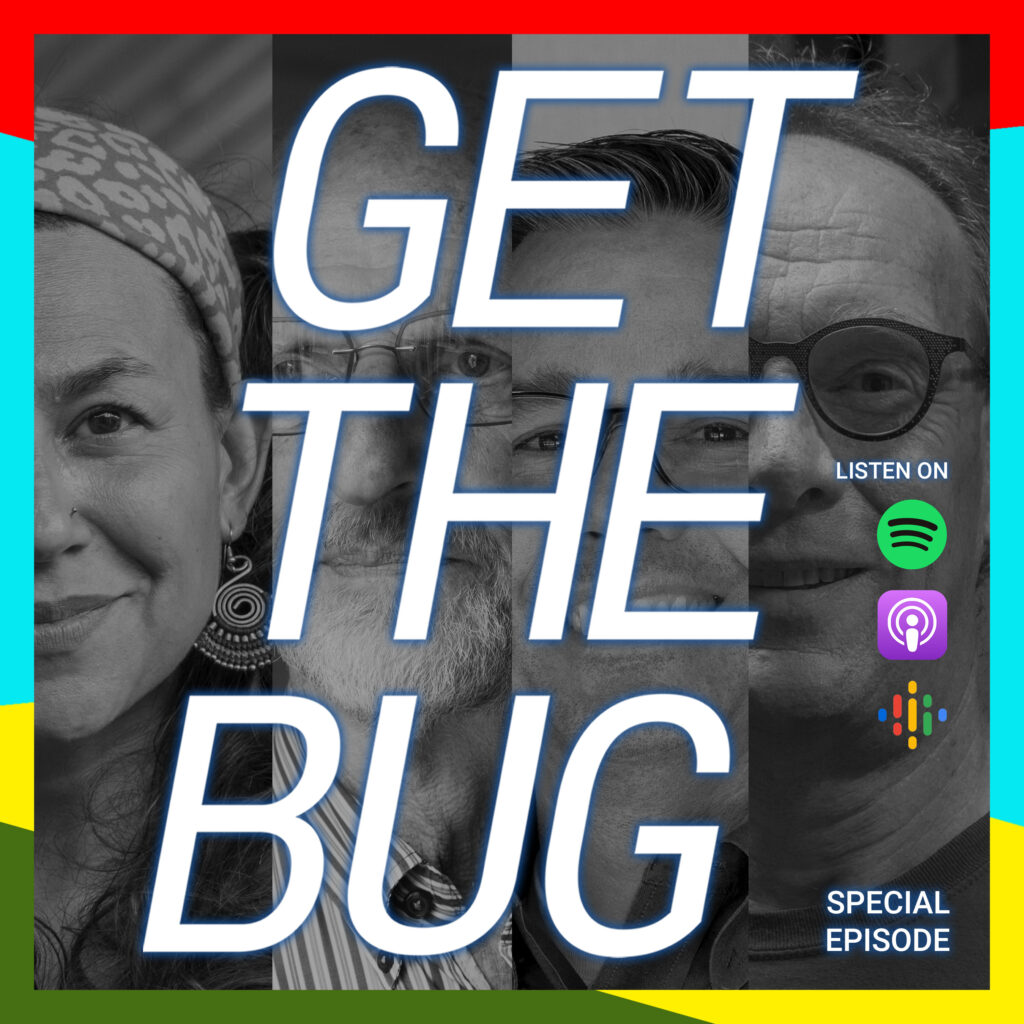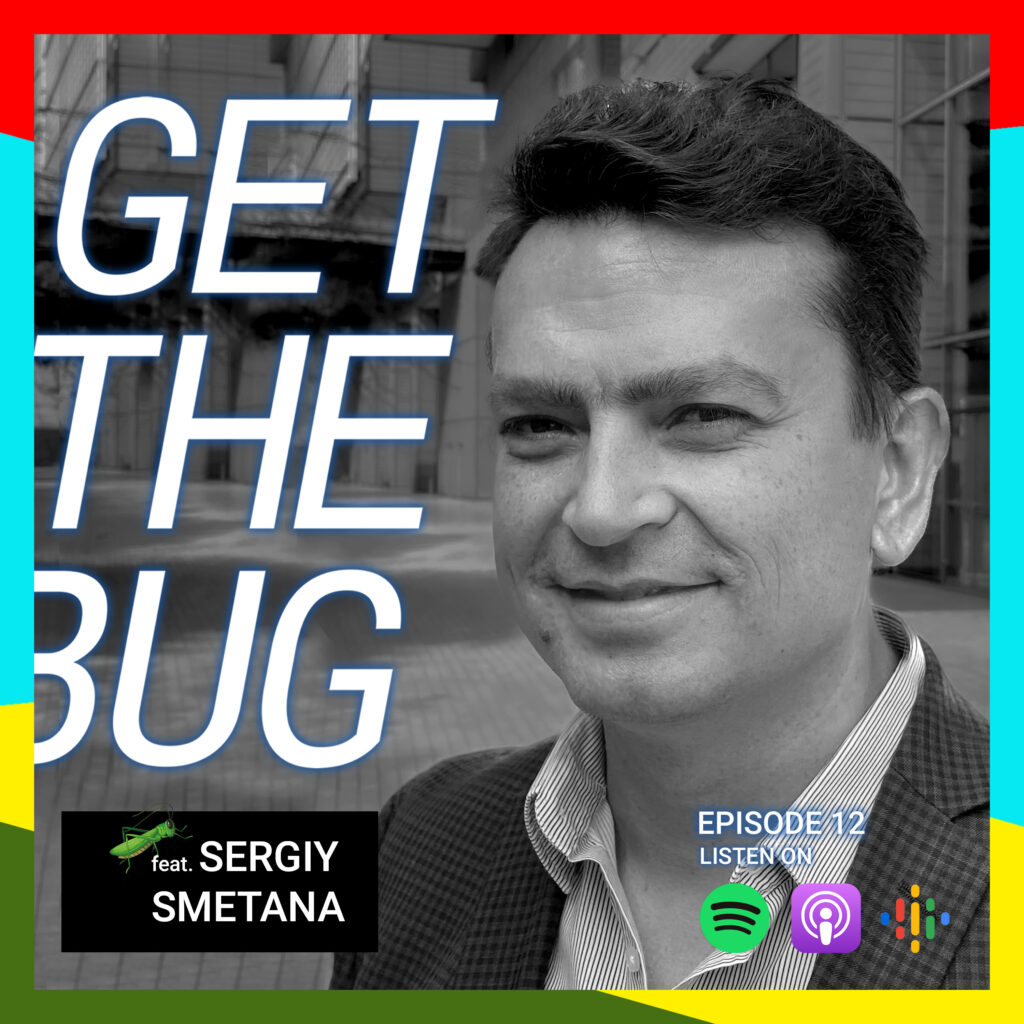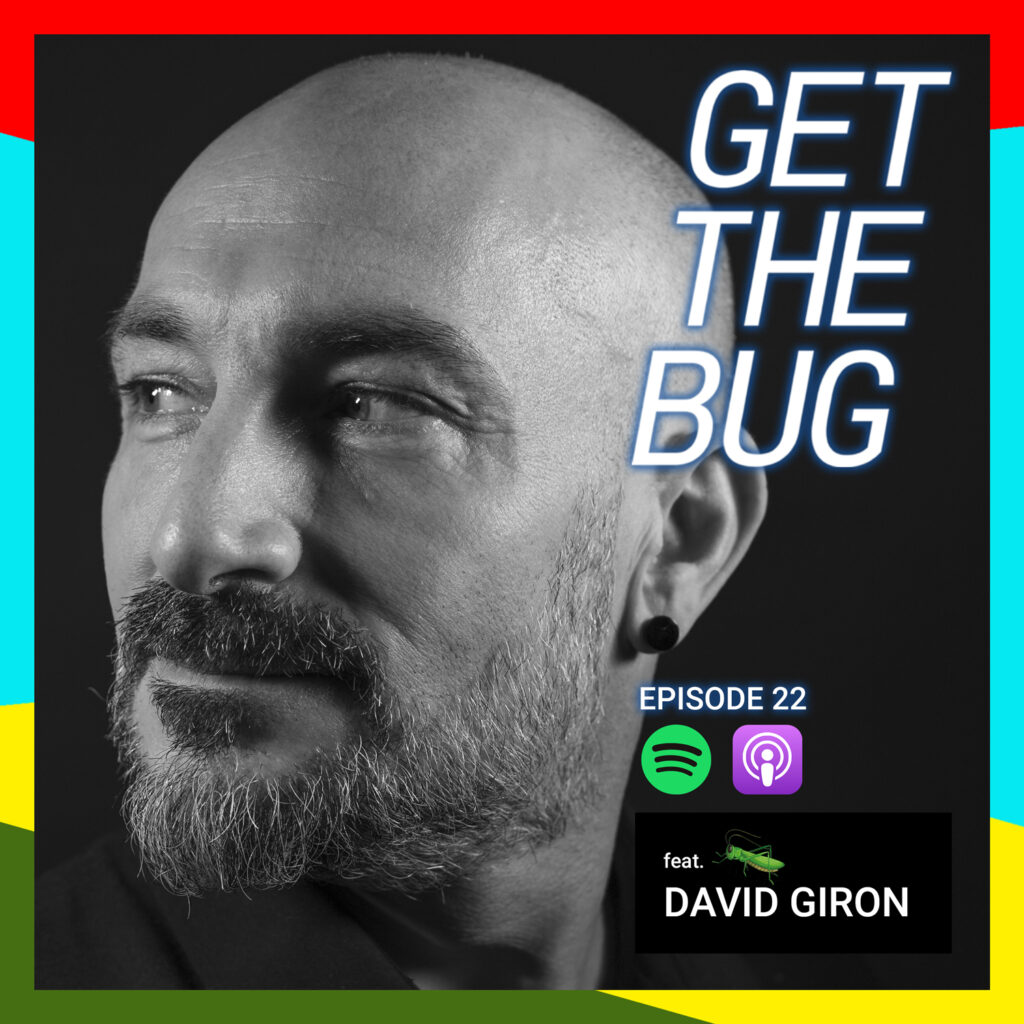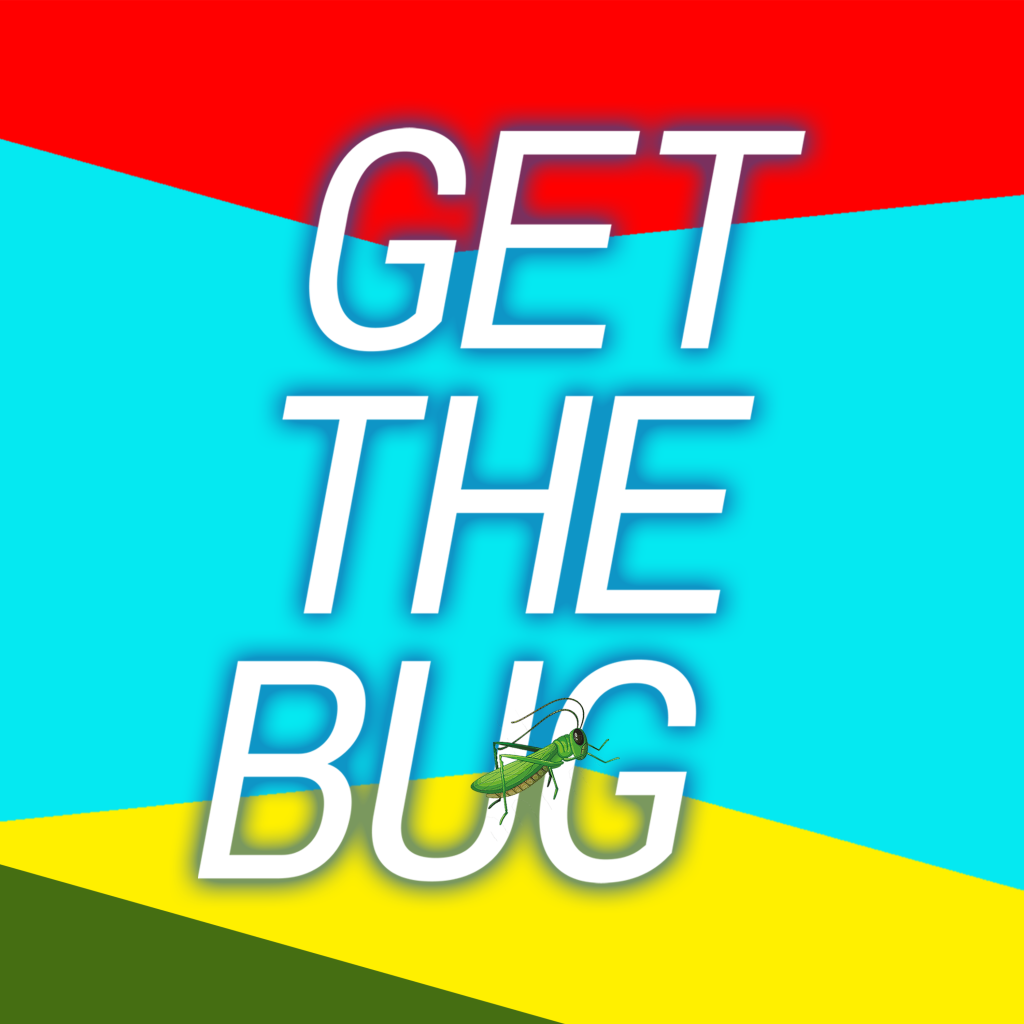
WELCOME TO GET THE BUG!
Farming insects could reduce the agriculture need for land and overfishing in the oceans, but also lower greenhouse emissions and help smallholder farmers to depend less on expensive imported feed. So… what if insects are the next game changers?
On GET THE BUG you will listen to the conversations I recorded during my journey.
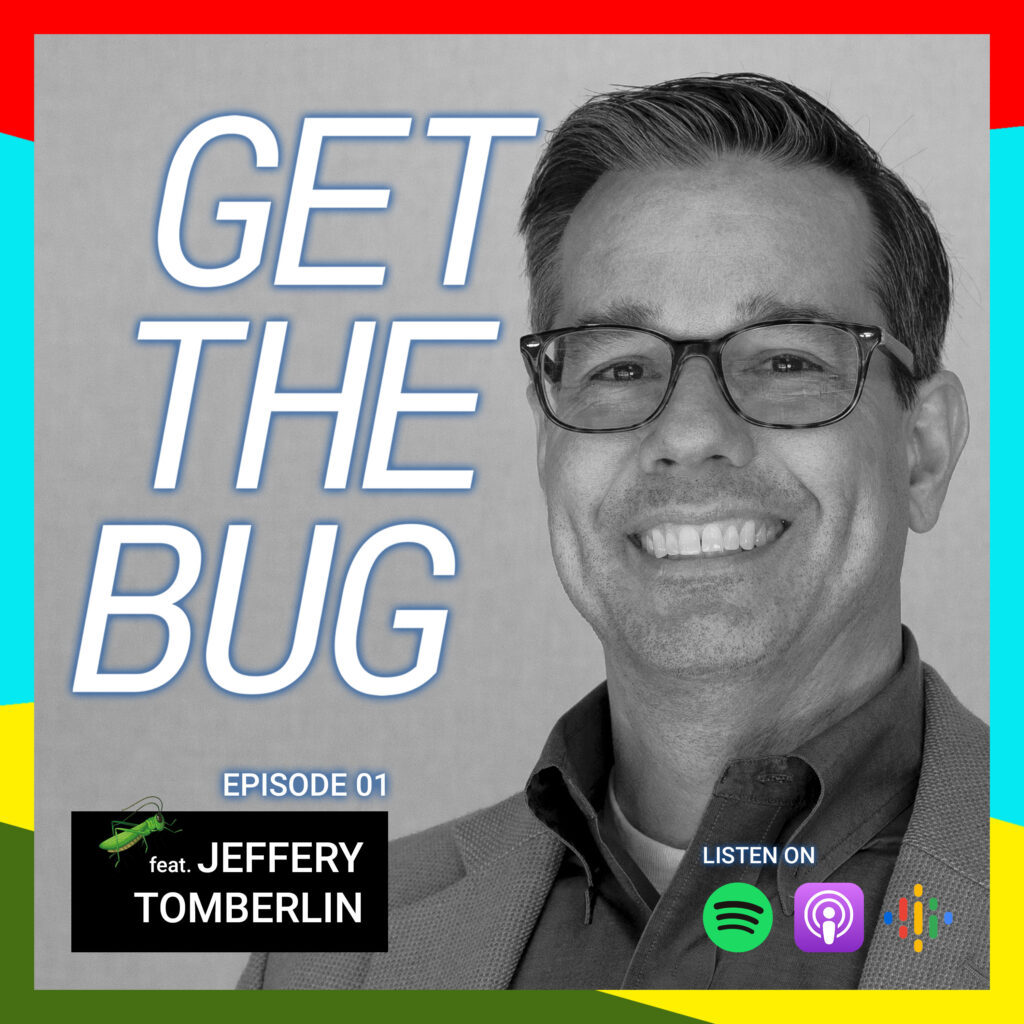
Episode 01
Featuring Jeffery Tomberlin: professor in the Department of Entomology at Texas A&M University and worlwide recognized expert.
We talked about the Black Soldier Fly, one of the most efficient bioconverters in the insect world, but also about learning from nature, circular economy, industry, the CEIF, and future generations.
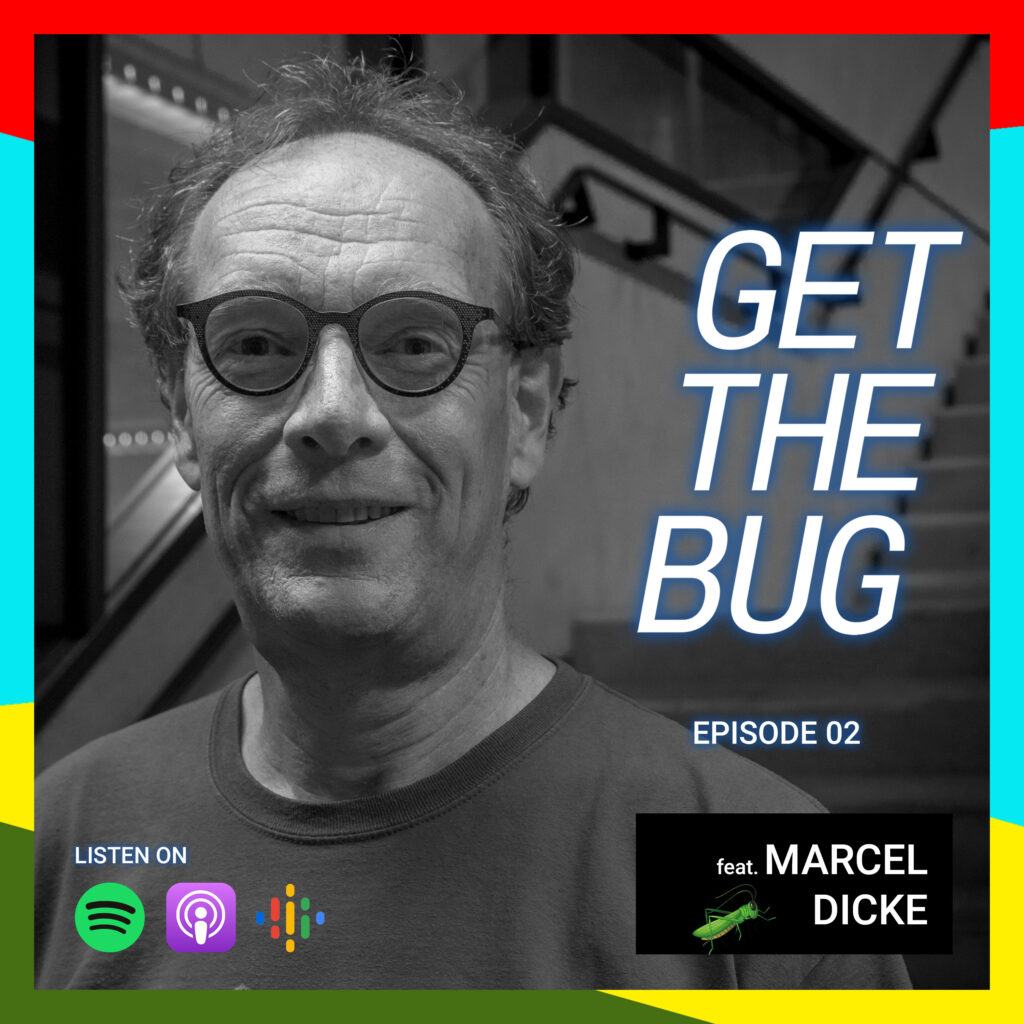
Episode 02
Featuring Marcel Dicke: professor of Entomology and Director of the laboratory of entomology at Wageningen University in The Netherlands, one of the best universities worldwide in the field of Life Sciences.
Marcel and I talked about biological control, pioneering entomology, insect-plant interaction, Colombian former combatants farming insects and much more.
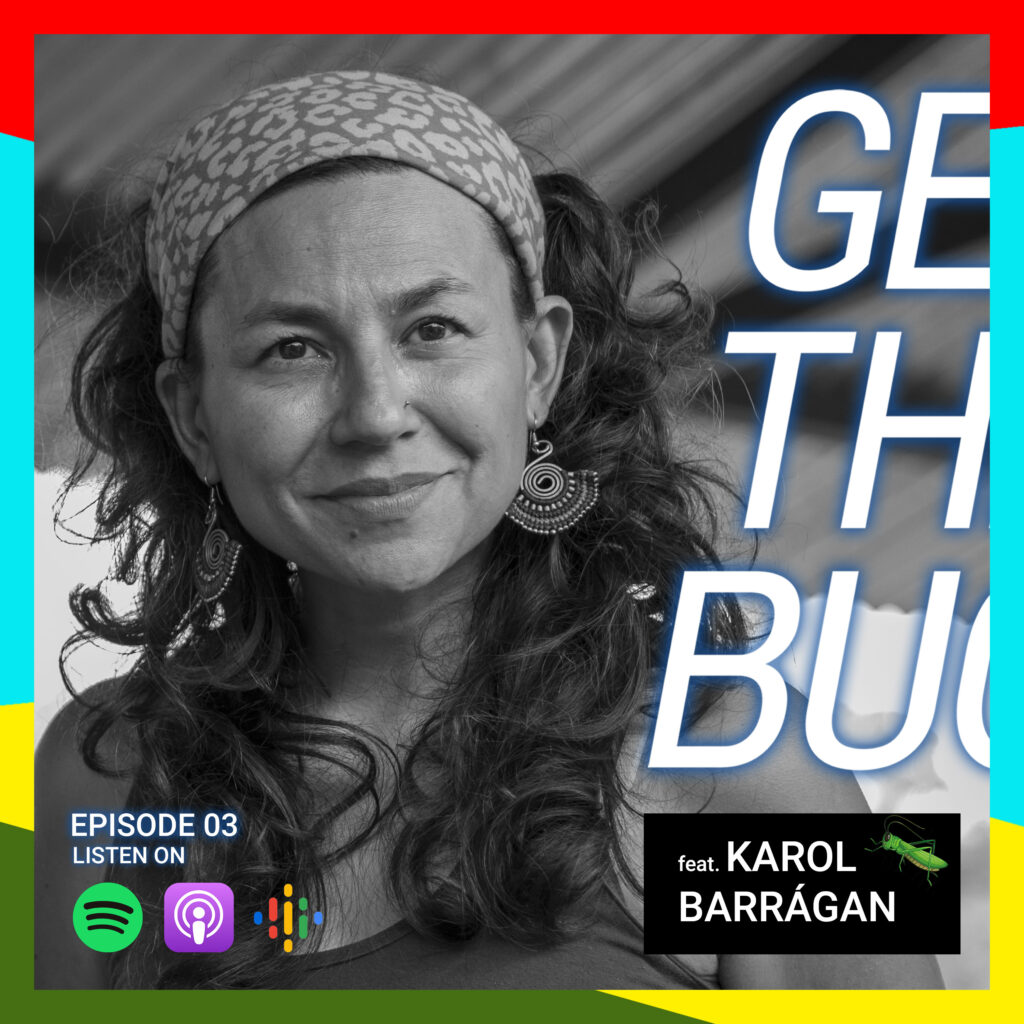
Episode 03
Featuring Karol Barragán Fonseca: assistant professor at the Universidad Nacional De Colombia, and coordinator of Insects For Peace / Insectos por la Paz
Insects for Peace helps small farmers who used to be members of the FARC- EP, women who have lost their husbands and children in the conflict and indigenous training and supporting them in the production of insects as feed.
(También en español)
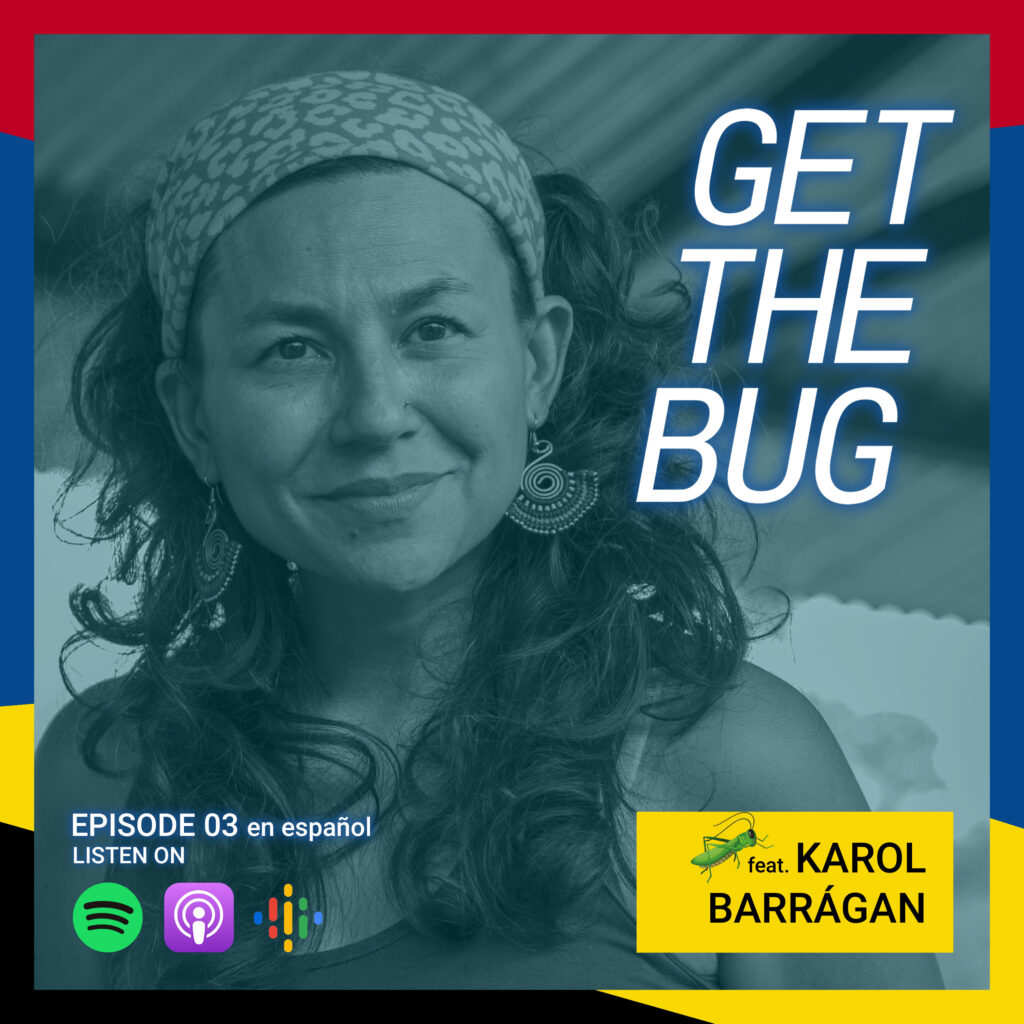
Episode 03 (en español)
Con la participación de Karol Barragán Fonseca: profesora en la Universidad Nacional de Colombia y fundadora y coordinadora de la iniciativa “Insectos por la Paz” (Insects For Peace)
“Insectos por la Paz” es una iniciativa que implementa la producción de insectos en comunidades rurales de firmantes de paz y comunidades que han sido afectadas por el conflicto armado en Colombia.Promoviendo en esta manera la soberanía alimentaria y la agricultura circular.
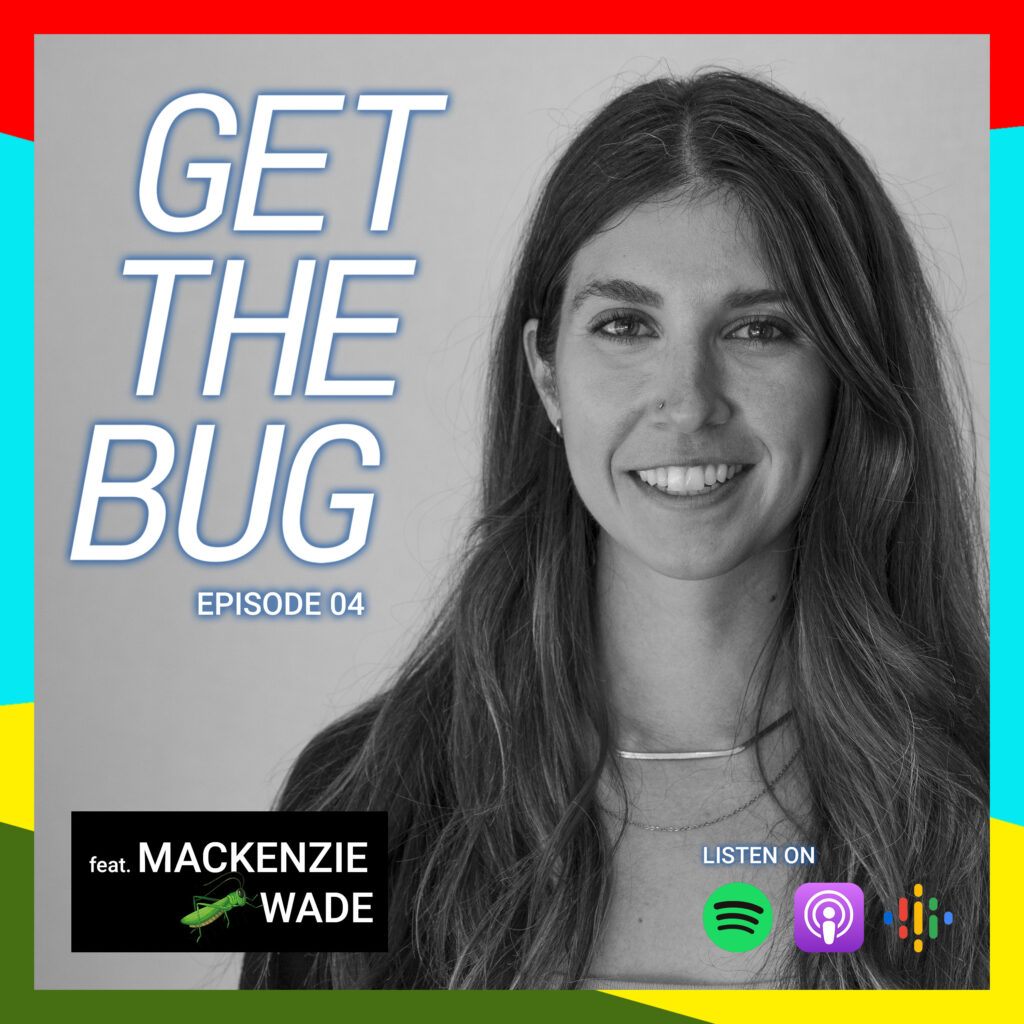
Episode 04
No doubt we have an aversion to insects, but why? And is there any sense behind it?
Featuring MacKenzie Wade from the Department of Anthropology at the University of California, Santa Barbara. MacKenzie is a cultural anthropologist and she developed a course on food system education through edible insects.
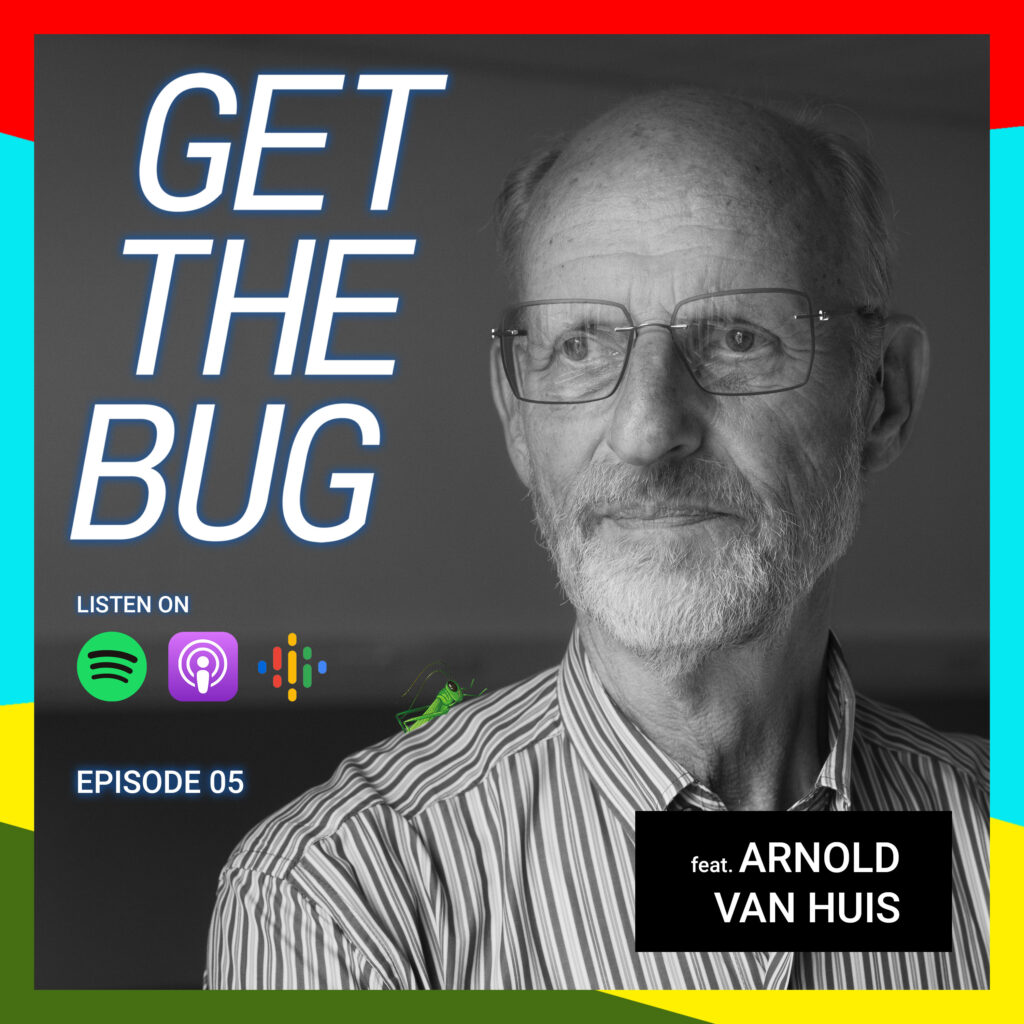
Episode 05
Featuring Arnold Van Huis: emeritus professor of Wageningen Agriculture University, pioneer in studying edible insects, and author of “Edible insects: future prospects for food and feed security’”, the book on the topic.
We talked about eye openers, pioneering entomology, edible insects, NOMA, “bibles” and game changers.
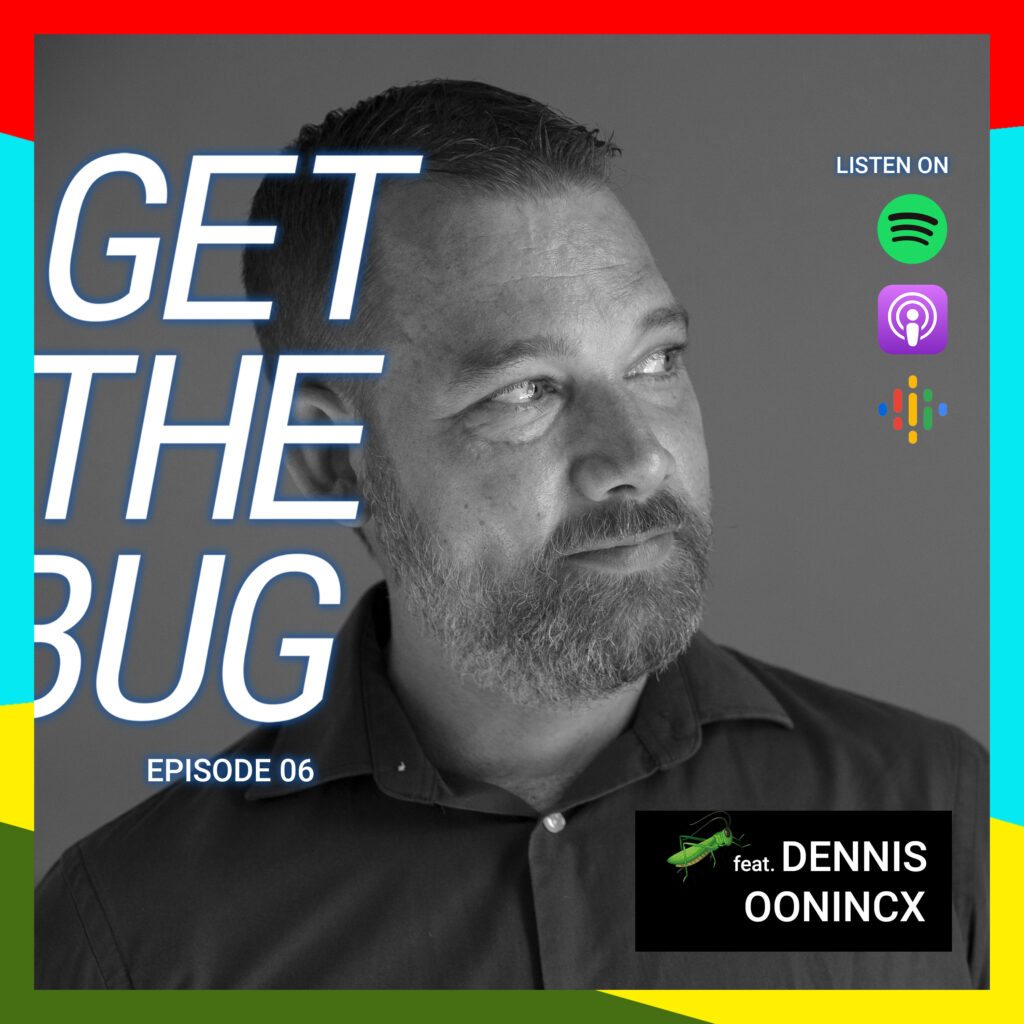
Episode 06
Featuring Dennis Oonincx: researcher for the Animal Nutrition Group at the Department of Animal Science of Wageningen University.
Wageningen University is one of the best universities worldwide in the field of Life Sciences, and with Dennis we talked about nutritional value of insects, mealworm farming, vitamin D, outputs, inputs, ammonia, bacon and crickets.
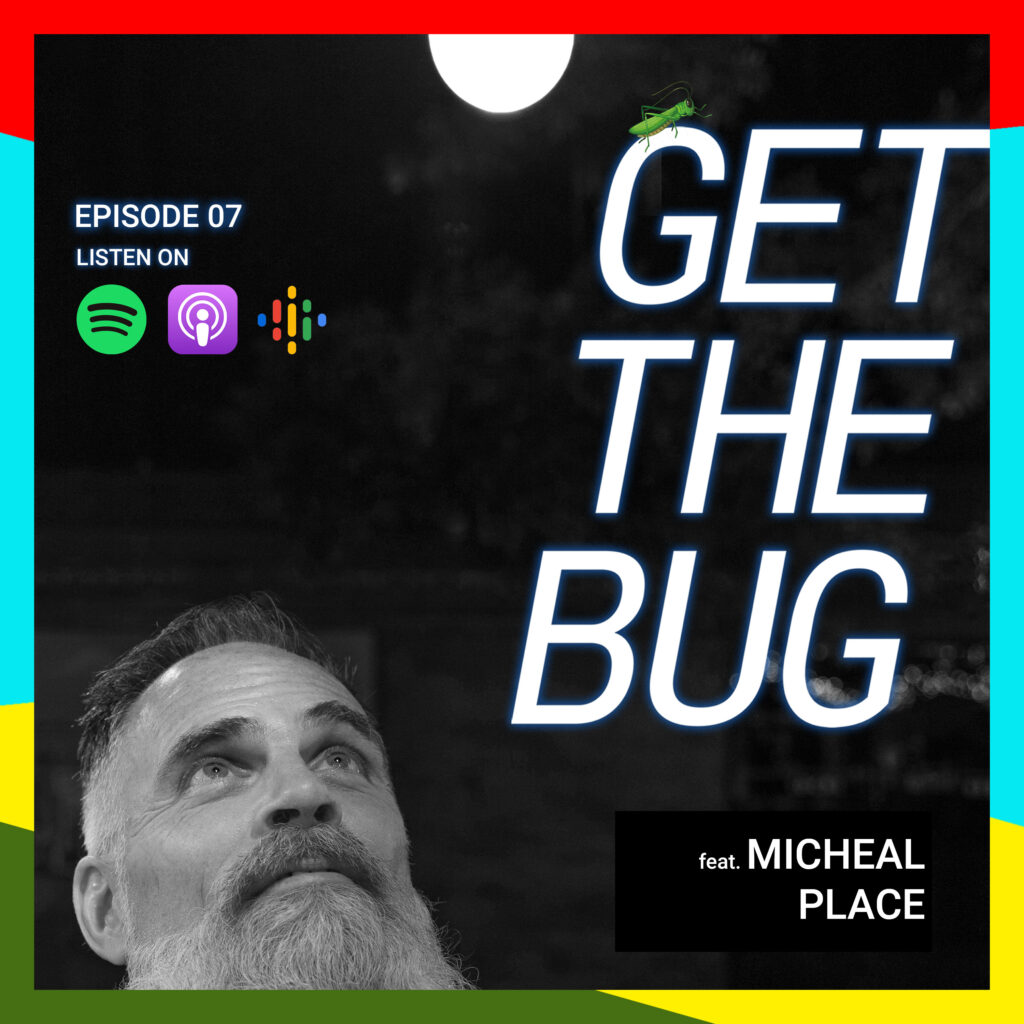
Episode 07
Featuring Micheal Place, Chapul Farms CTO.
“It was amazing when Black Soldier Fly kind of presented themselves as a vehicle to finally put my money where my mouth was, and try and do something other than just understand things for myself, or maybe my family and friends: it’s an opportunity to create a better and more resilient food system.”
With Micheal we talked about insect agriculture, broken systems, biomimicry, aquaculture, dancing with the devil and a personal journey around nutrition that ends up with clarity of thinking.
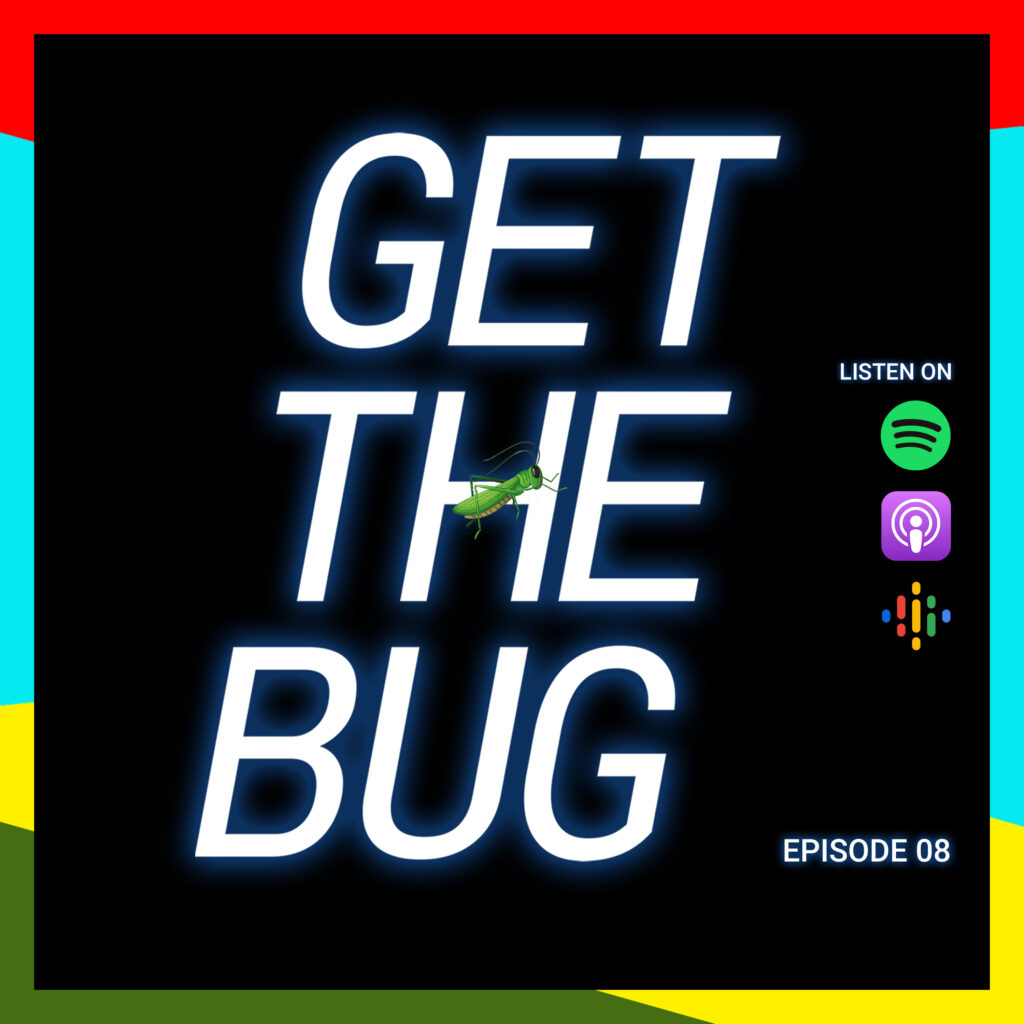
Episode 08
From the CEIF Spring Meeting 2023, ft. Jeffrey Tomberlin (Texas A&M University), Christine Picard (The Indiana University and Purdue University Indianapolis), Heather Jordan (Mississippi State University), Patrick Crowley (Chapul Farms), Christopher Warburton (Entosystem), Cheyrl Preyer, (CEIF industry liason officer).
“Universities are often looking further out and they dive deeper. Industries have to be more short sighted in terms of where the research is going. In the case of insect agriculture we’re in the dark ages, just jumping into applied research would be a shallow way to develop a body of knowledge.”
We talked about the insect frontier today, dark ages, highest priorities, aquaponics, fast food, microbs, revalorizing food waste, bubbles and counteropinions.
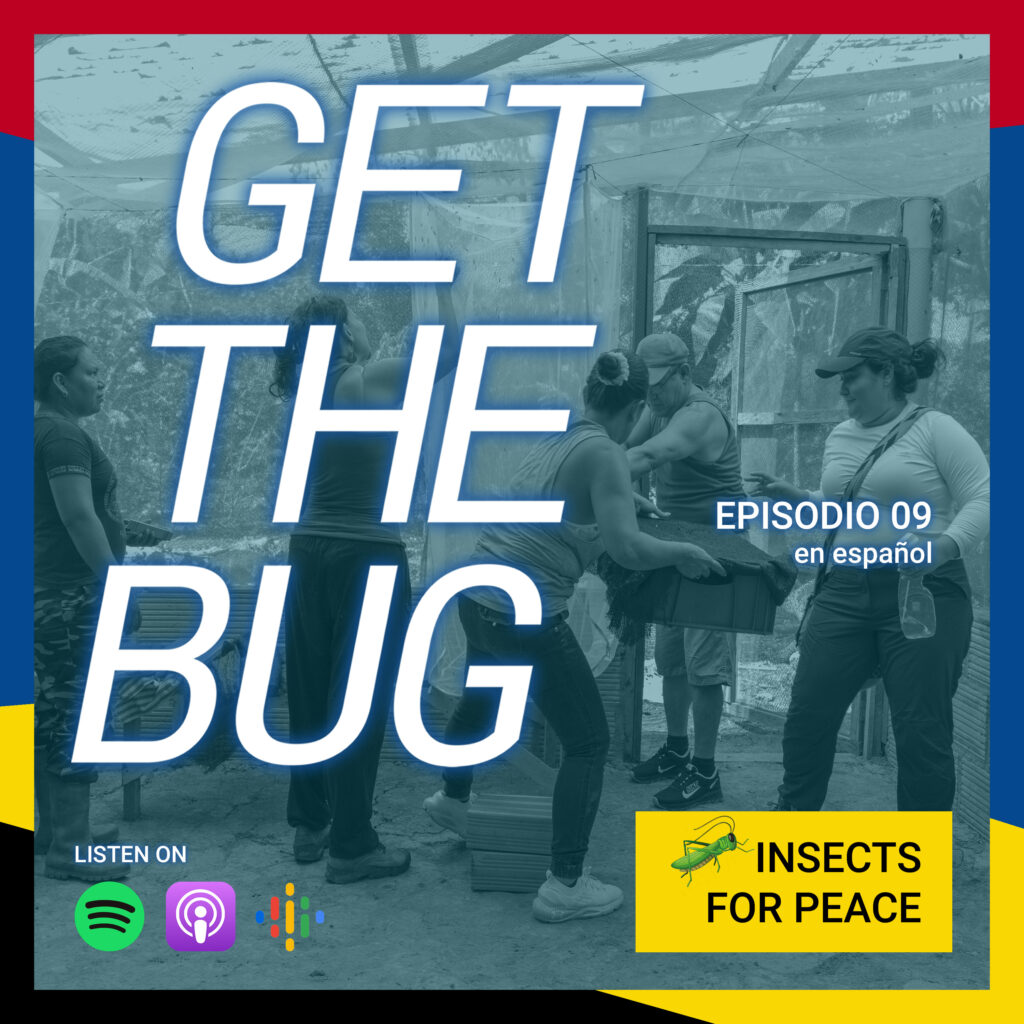
Episode 09 (en español)
Con la participación de Karol Barragán Fonseca, profesora en la Universidad Nacional de Colombia y fundadora y de “Insects For Peace” y Julieth Rodriguez, Erika Perez, Martha Nelly Castañeda, Juan de la Cruz Vega, Juan Antonio Castro y Alberto Ocampo que viven en el AETCR Jaime Pardo Leal.
“Este es un proceso que puede independizar a las comunidades de la compra de insumos externos y por otro lado, puede fortalecer sus economías locales.”
“Insects For Peace” es una iniciativa que implementa la producción de insectos en comunidades rurales de firmantes de paz y comunidades que han sido afectadas por el conflicto armado en Colombia. Promoviendo en esta manera la soberanía alimentaria y la agricultura circular.
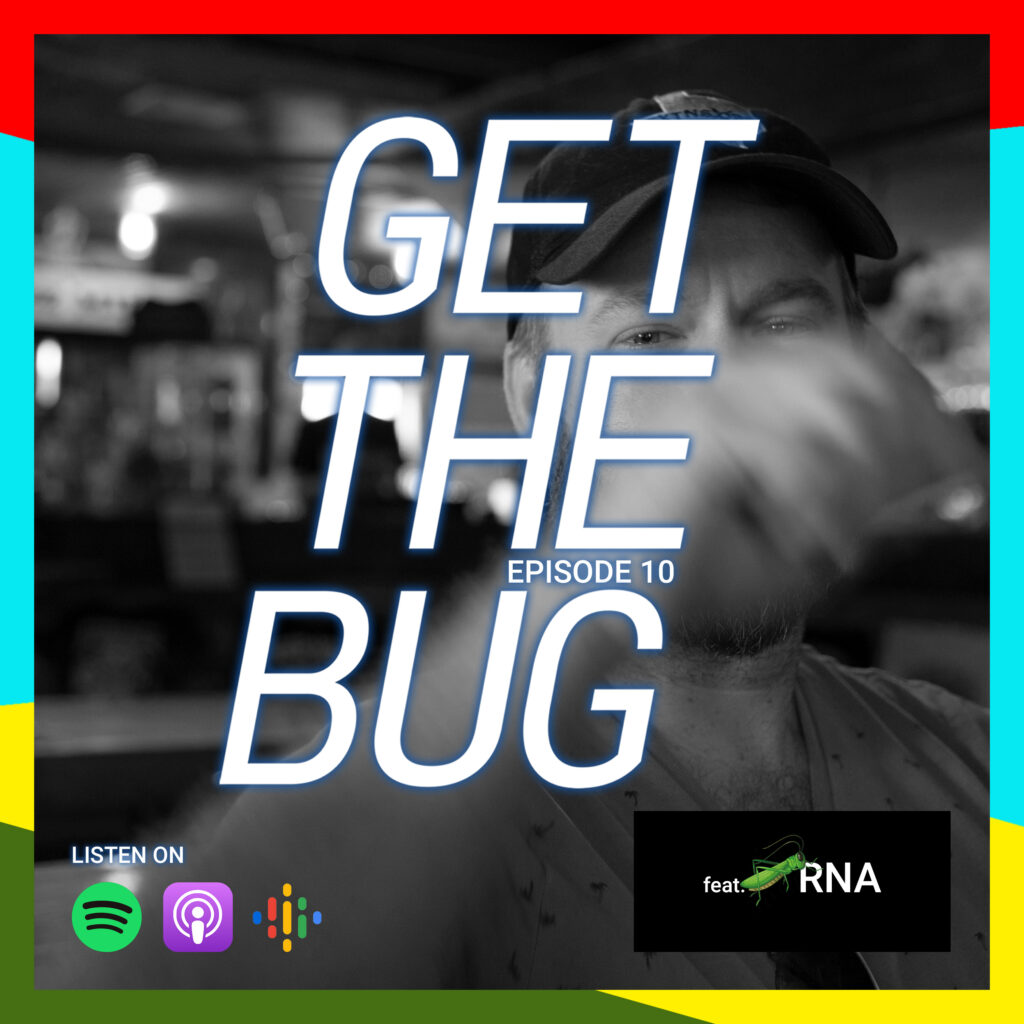
Episode 10
Featuring RNA (Robert Nathan Allan) executive director of the FUTURE of FOOD event series, cofounder and board member of NACIA, and founder of “Little Herds”.
“We’re really quickly approaching a sort of tipping point where the broader agribusiness community, livestock community, and sustainable food community are recognizing insect agriculture as one of a variety of solutions. And it’s one that really elevates and increases the efficiency of other operations.”
With RNA we talked especially about food, education, frame & reframe, derisk, sushi, gas stations, chapulines overharvesting and a lot of joy.
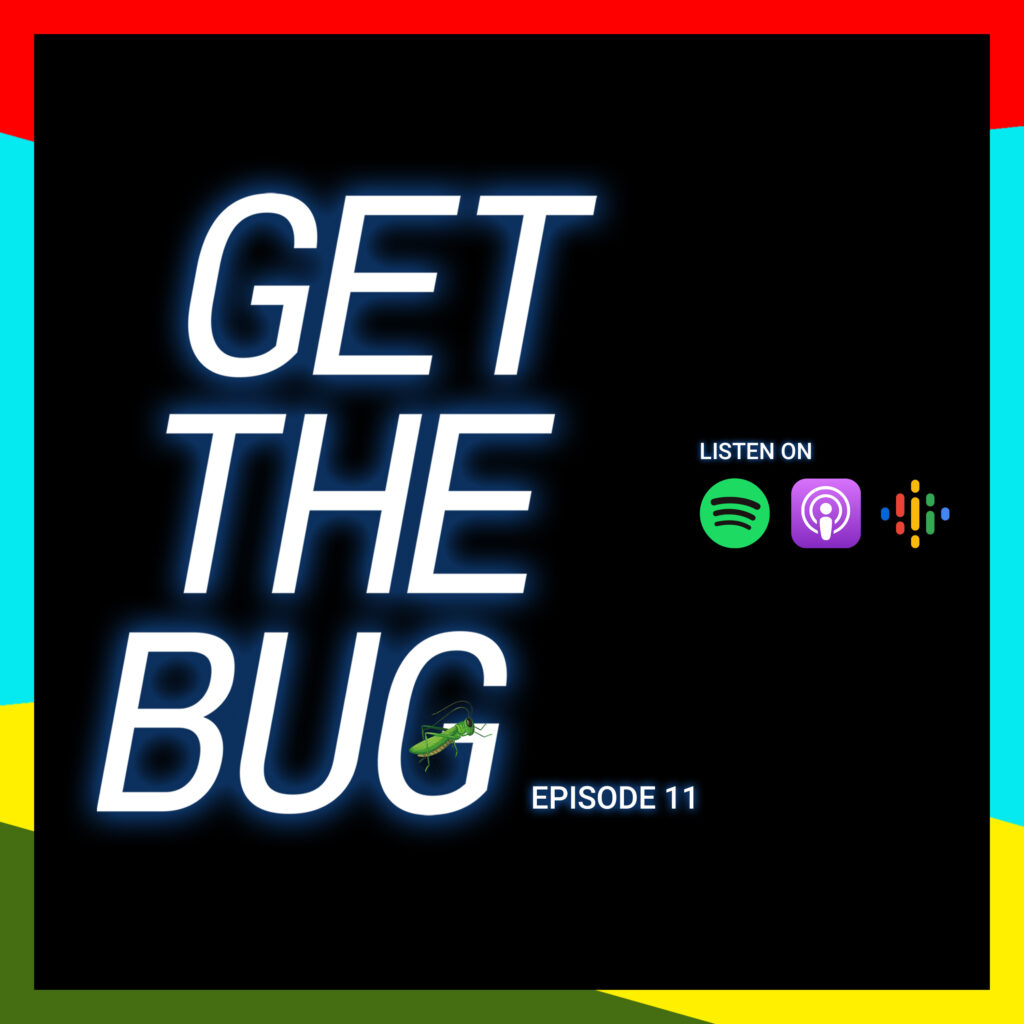
Episode 11
From the AFFIA Forum 2023, featuring Emilie Devic (AFFIA vice secretary), Martin Zorrilla (General Chair of the IFW2024 Local Organizing Committee) and Ian Jones (Agri House).
We talked about the South Est Asian context, networking and secrecy, the next Insects To Feed the World, which will take place in Singapore, in 2024, and about the role of insect farming in marginalized communities in Cambodia.
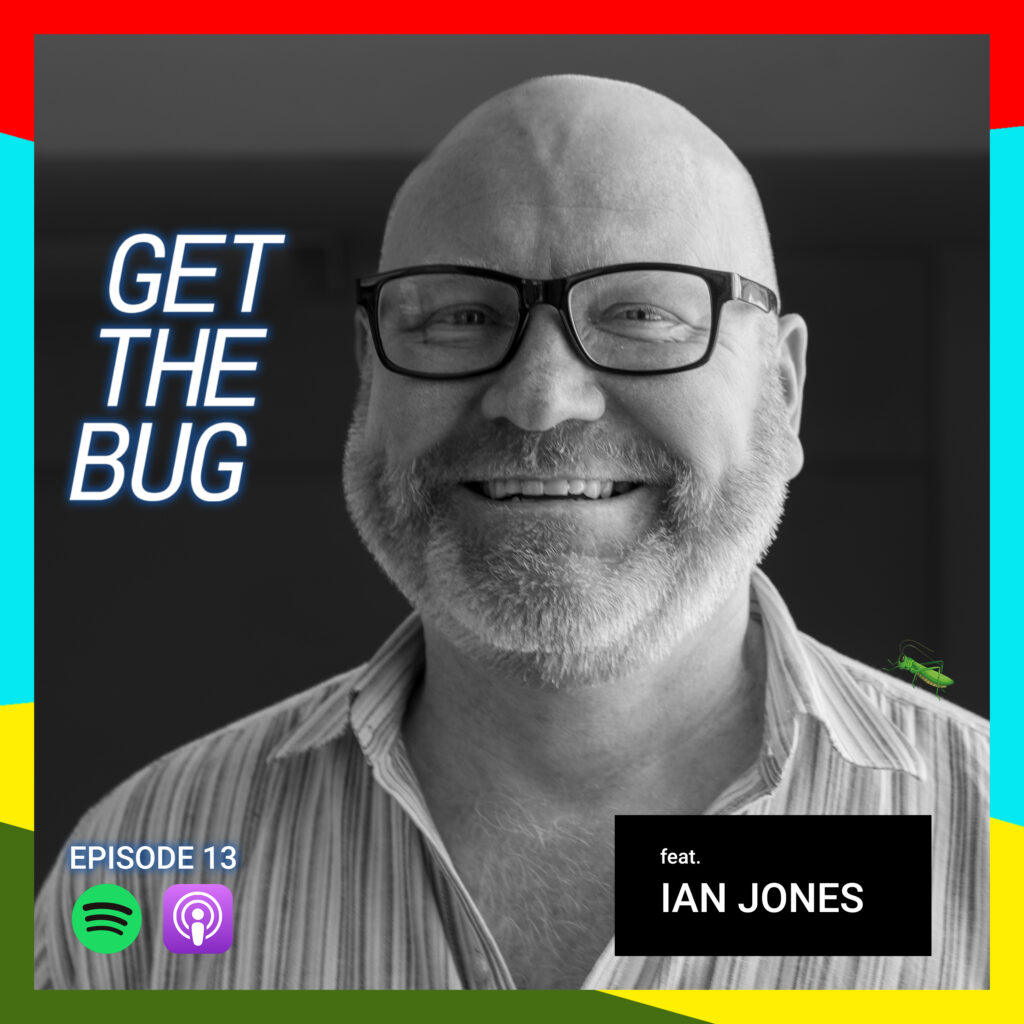
Episode 13
Featuring Ian Jones from (among many other things) Agri House, an innovation impact venture working with marginalized communities to overcome food and financial insecurity in Cambodia.
Listen to our conversation to know more about Cambodian cricket farmers of all abilities, inclusive venture and adapting financing.
Agri House is a Khmer women owned and women led registered company. Cricket production represents one of the best alternative livelihoods in Cambodia. As a replacement or complement to rice cultivation, it is a stable production that provides a margin and a regular income.
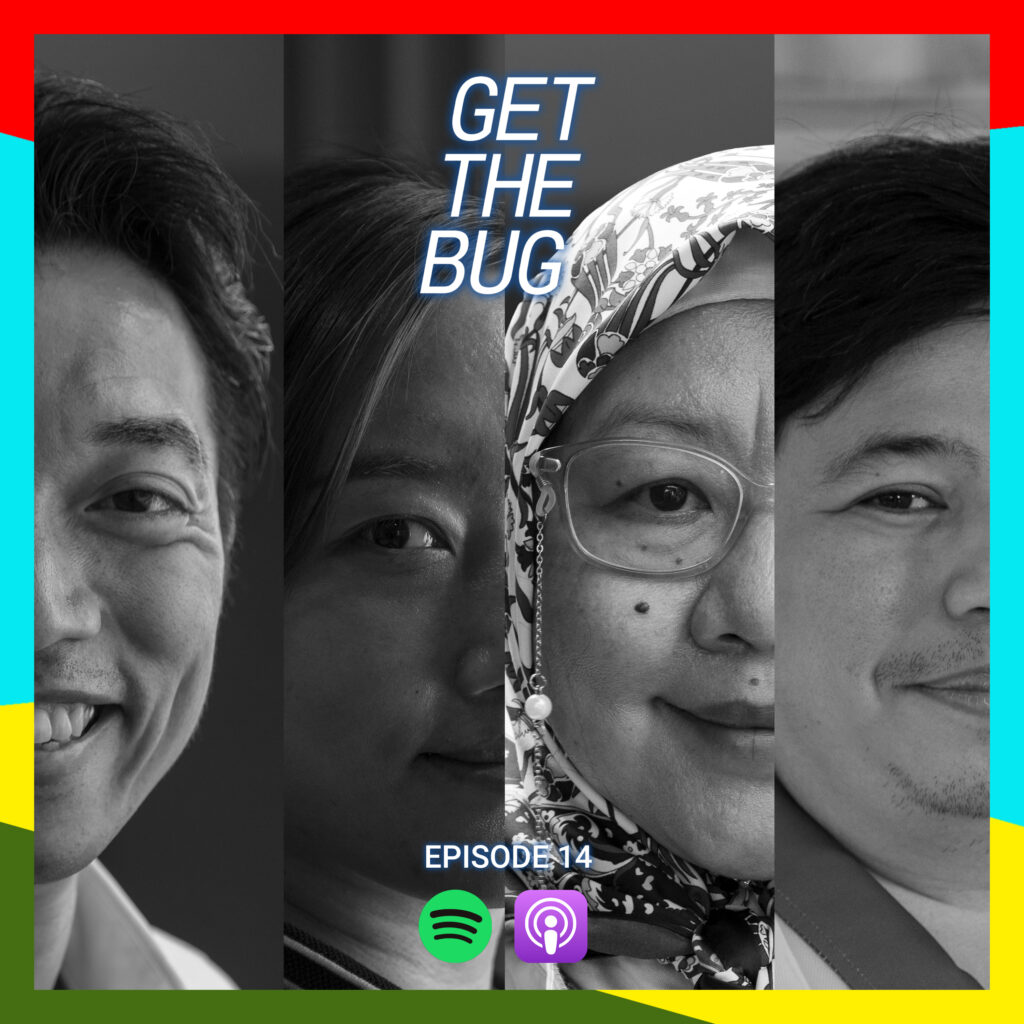
Episode 14
Featuring Rossita Sahpawi, lecturer and researcher from the Borneo Marine Research Institute in Malaysia – with Rossita we discussed the potential of black soldier fly larvae to serve as an aquaculture feed ingredient in marine species – Chujun Li, entomology post doc at Sun Yat-Se University and R&D manager at Unique Biotechnology in Guangzhou, China, Yodai Okuyama, Study Team Member of the Japan International Cooperation Agency, Attawit Kovitvadhi, Assistant professor at Kasetsart University, Bangkok, Thailand.
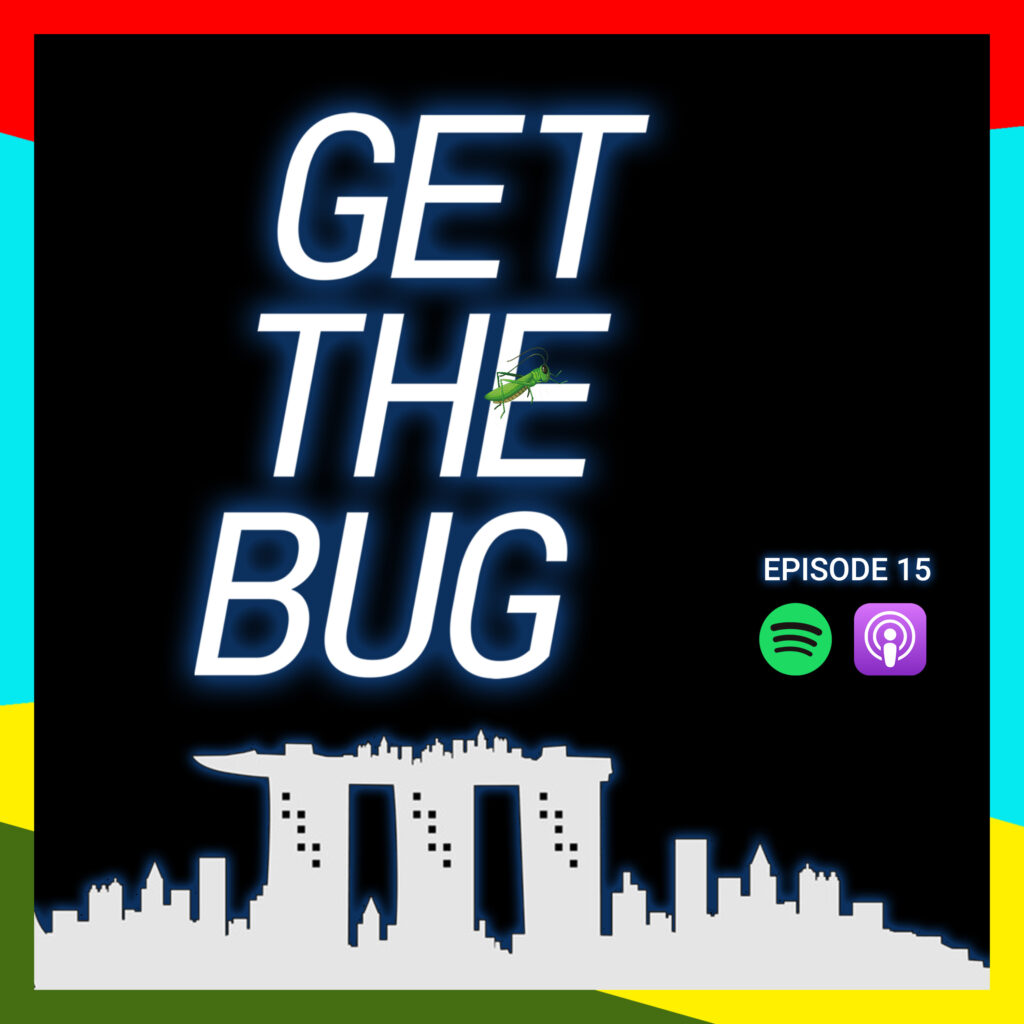
Episode 15
Featuring Moritz Gold as IFW24Scientific Committee Chair, and Leo Wein, as IFW24 General Co-Chair.
Where is the cutting edge research going? Which are the new prominent topics? Insect farming will be more about waste management and soil health? What about Singapore on the “insect space” map?
We went through all of these questions with Moritz and Leo, both from the “Insects To Feed The World 2024” Committee: the premier conference for the Insects as Feed and Food sector.
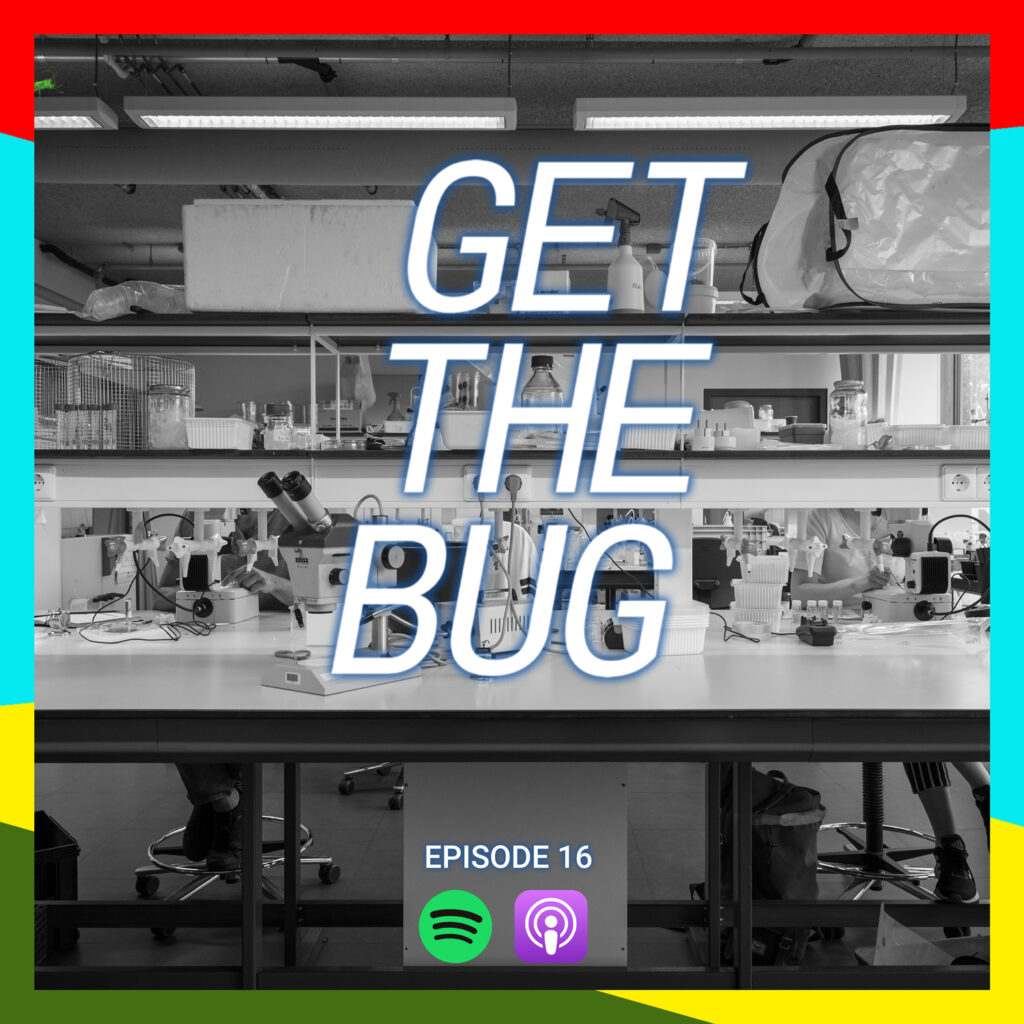
Episode 16
Recorded at Wageningen University and featuring: Joop J.A. van Loon, Teun Veldkamp, Somaya Naser El Deen, Shaphan Y. Chia ( … and Marcel Dicke).
Wageningen University in The Netherlands is one of the best universities worldwide in the field of Life Sciences.
Which is the relation between insecticides and insect as feed and food? Is industry running ahead of the research? What a flexiterian is? What about Kenya and Black Soldier Fly farming? And (ghost questions): every tomato sauce makes your spaghetti “bolognese?”, what about reducing meat consumption and insects as food?
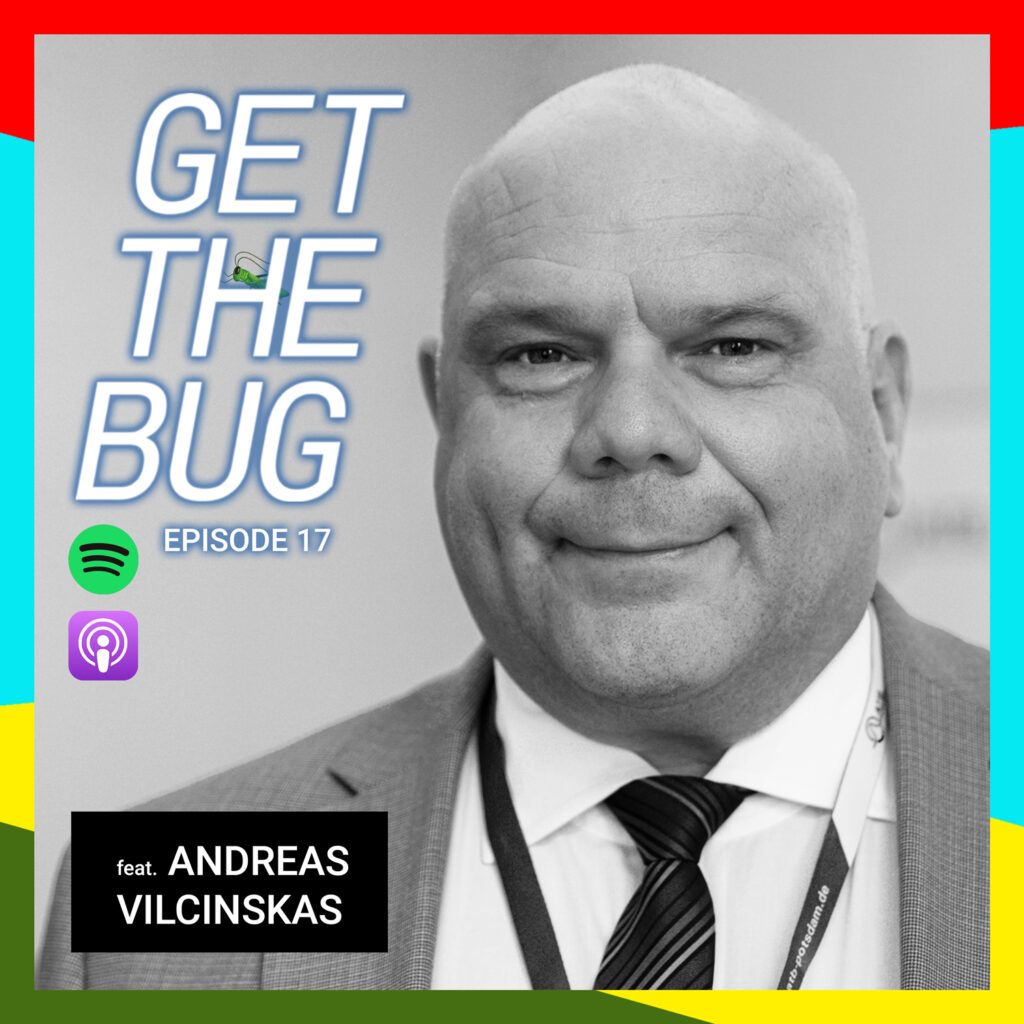
Episode 17
Featuring Andreas Vilcinskas, director of the Institute for Insect Biotechnology and Insect Biomedicine he is also heading the branch “Bioresources” of the Fraunhofer Institute for Molecular Biology and Applied Ecology, both in Germany.
Andreas Vilcinskas is recognized internationally for his expertise and continues to influence the field through his pioneering research and academic leadership.
We talked about controlled environmental agriculture, yellow biotechnology, the Sustainable Development Goals, palm oil and insects farming, peptides and high added value insect based products.
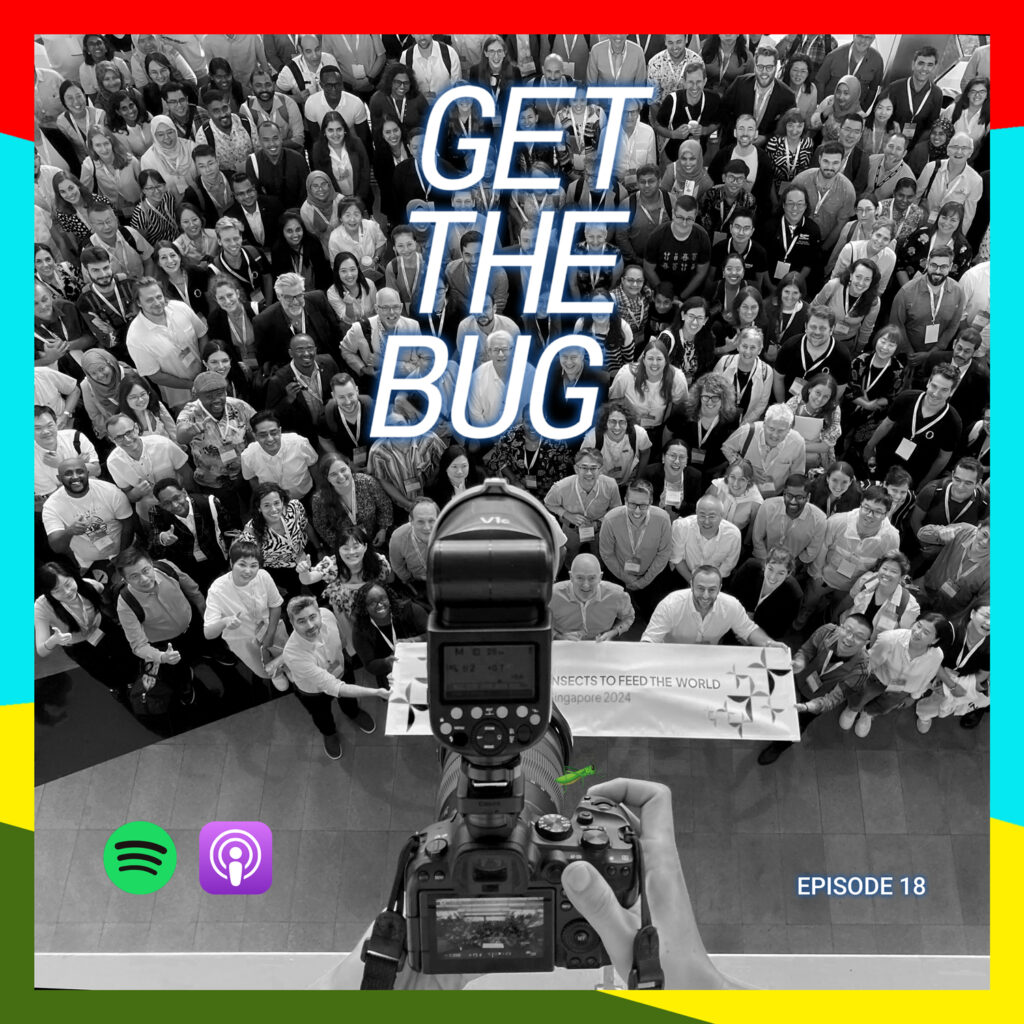
Episode 18
In this episode you will listen to the conversation I recorded in Singapore with Marie-Hélène Deschamps, assistant professor at the animal science department at the Université Laval, Quebec, Canada.
She was the moderator of the panel “Global Perspectives on Insect Research” at the “INSECTS TO FEED THE WORLD 2024. You will also hear directly from some of the leading researchers in the sector who participated in the panel. Some of them have already appeared on the Get The Bug Podcast (as Jeffery Tomberlin and Arnold Van Huis) as my goal from the start has been to spotlight the cutting-edge minds in the field of edible insects.
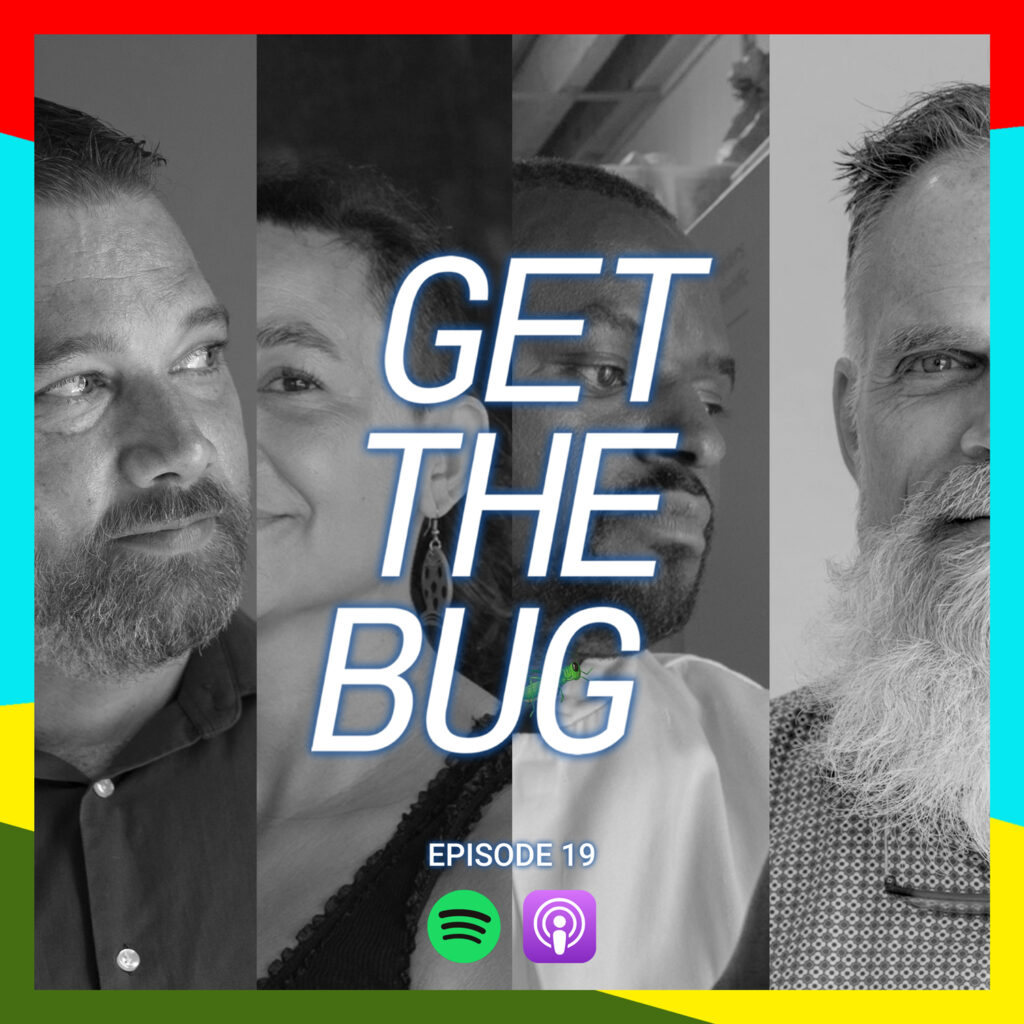
Episode 19
In this episode you will listen to the conversation I recorded in Singapore with Dennis Oonincx and Teun Veldkamp from Wageningen University, Shaphan Chia, from the ICIPE, Kenya, Karol Barragán Fonseca, professor at the Universidad Nacional De Colombia and “Insects For Peace” founder, and Micheal Place and David Eshed, from two companies: Chapul Farms and FreezeM.
We talked about frass, economic sustainability, mass-producing grasshoppers, agroecological practices, hydrocarbon inputs, the brand new Academic Society for Insects as Food and Feed.
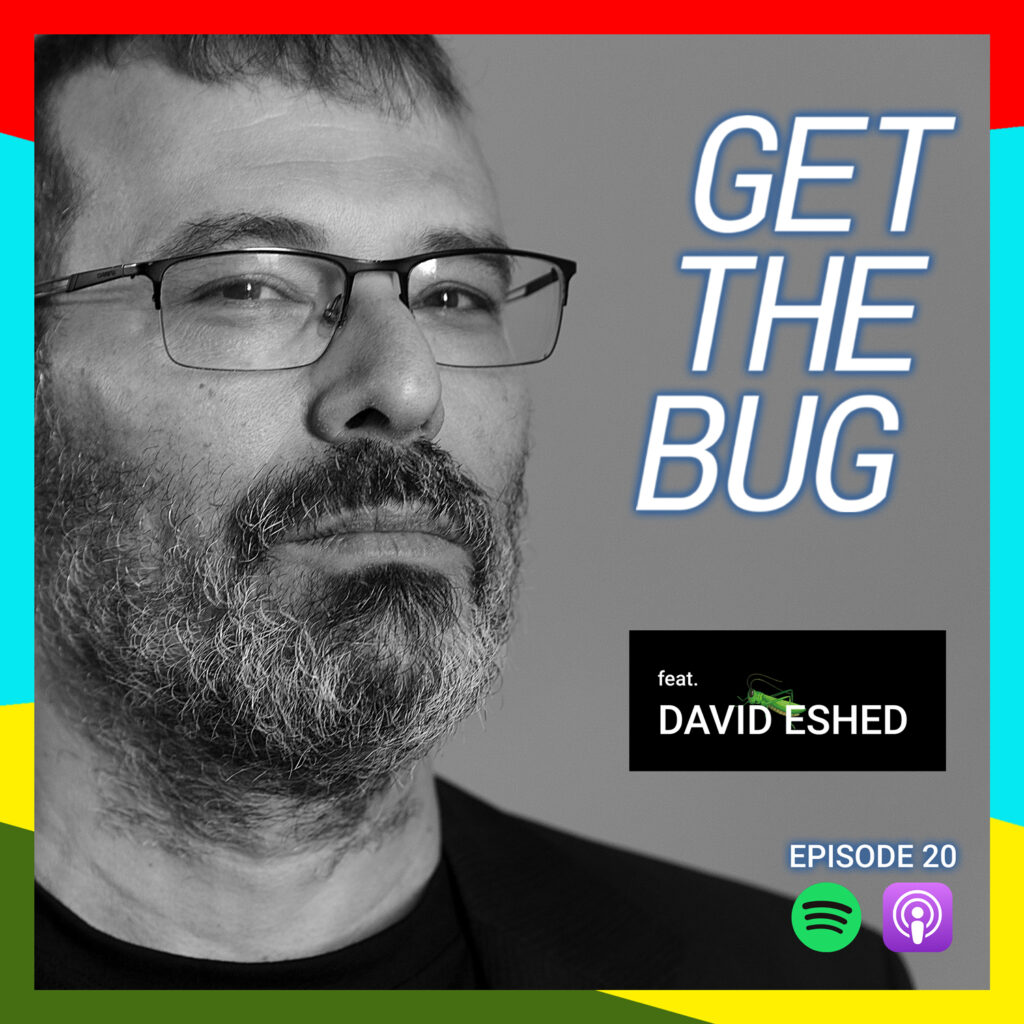
Episode 20
Featuring David Eshed, from FreezeM. David is in charge of the business development of FreezeM, a company focused on the breeding stage of Black Soldier Fly.
We talked about bad waste and good news, insect protein production, vertical integration and specialisation within the industry, and the present and the future of the sector.
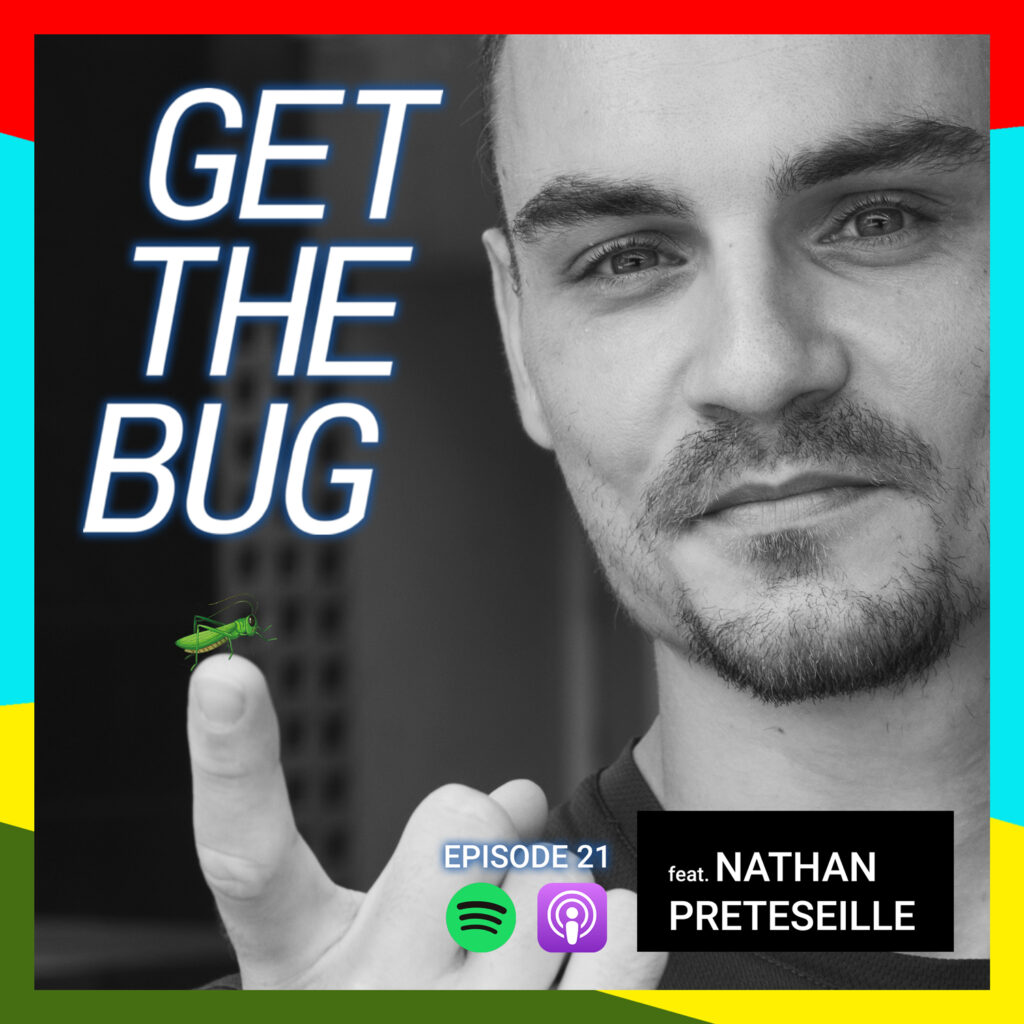
Episode 21
Featuring Nathan Preteseille, insects as food and feed expert, AFFIA Founder, project manager at at La Compagnie des Insectes, and Vouvray producer.
We talked about regulatory limitations in Europe, South East Asia and US, unlocking the insects potential in agriculture, frass, the insect-based biofertilzer – and French wine.
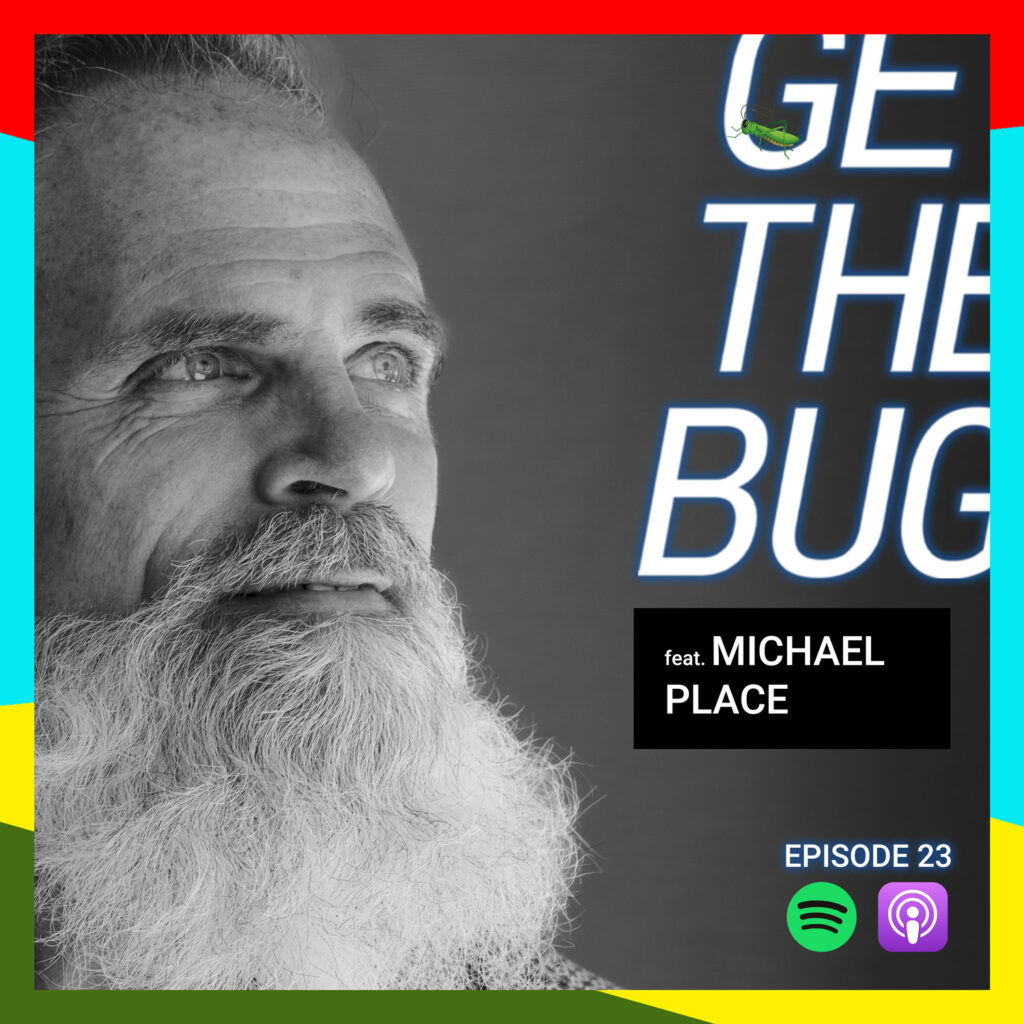
Episode 23
Featuring Michael Place, Chapul Farms CTO, free thinker and natural philosopher.
Chapul Farms is an innovative company specializing in insect agriculture.
We talked about: rethinking the food system, food and protein waste, the promise of “Frass”, the biofertilizer derived from insect farming, and new frontiers.
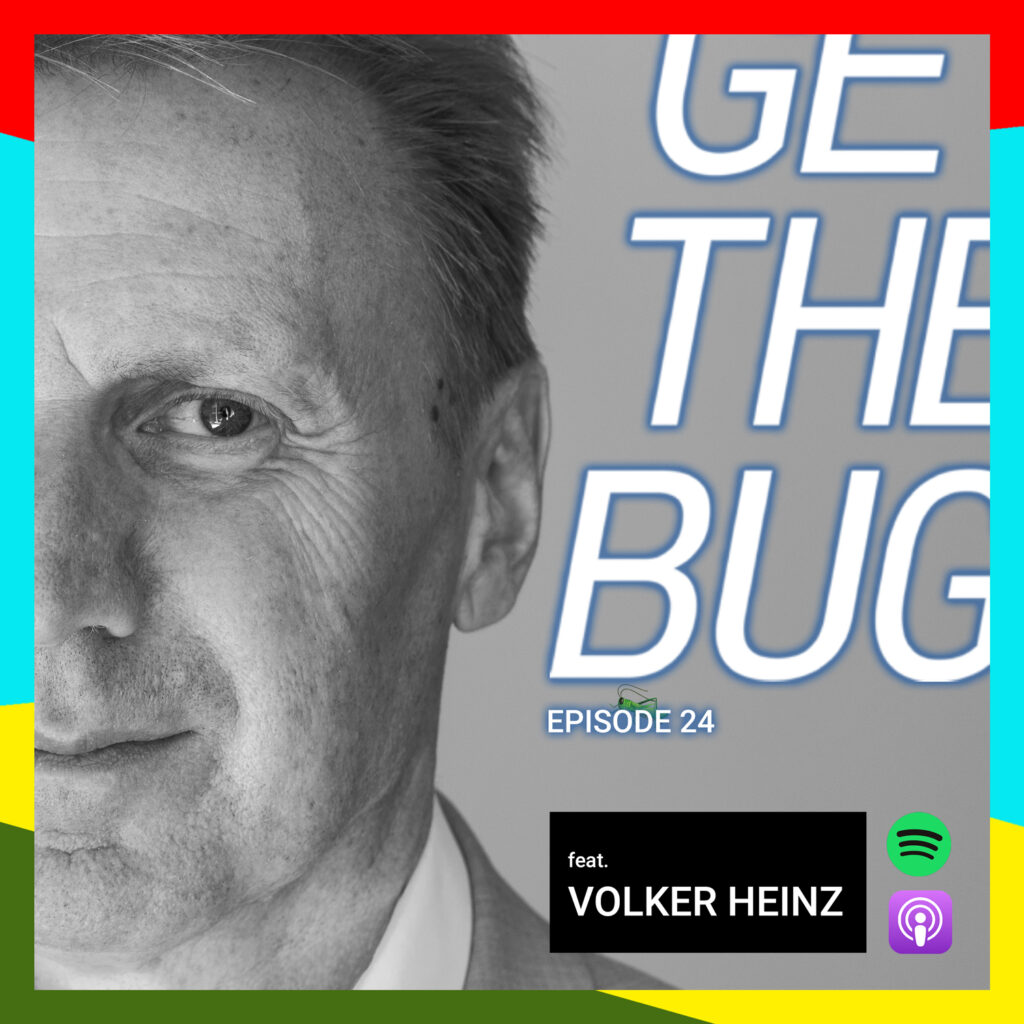
Episode 24
Featuring Volker Heinz, the director of the German Institute of Food Technologies.
Featuring Volker Heinz, the director of the German Institute of Food Technologies.
At the DIL (Deutsches Institut für Lebensmitteltechnik), Dr. Heinz and his team experimented extensively, creating an environment optimized for insect reproduction, including controlled light, wind, temperature, and humidity.
We discussed circularity in the food system, CO2 and nitrogen cycles, new fields, trials and errors, and alternative proteins.
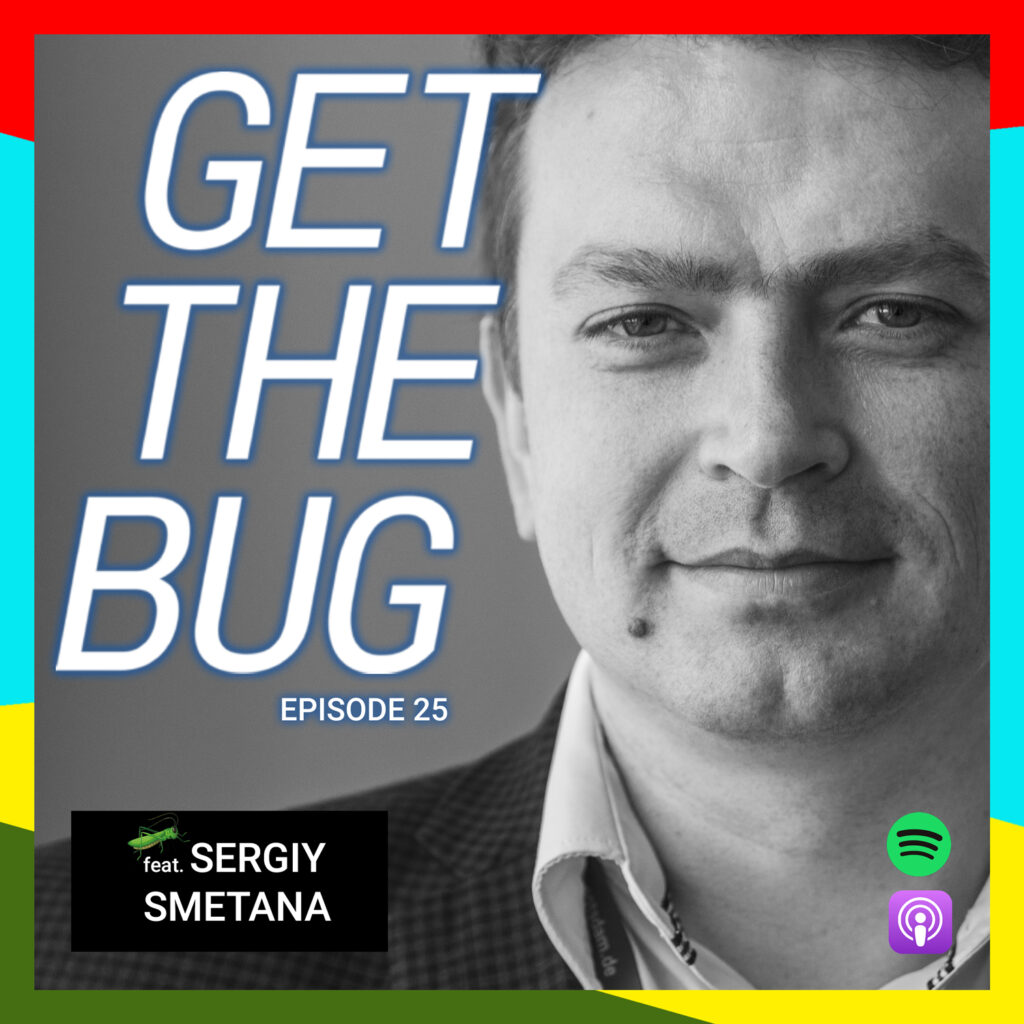
Episode 25
Featuring Sergiy Smetana, Head of the Food Data Group at the German Institute of Food Technologies.
We talked about organic waste, how to define it and how it is treated, and the role of insect farming in all of this.
Sergiy explained that insects, particularly black soldier flies, can bioconvert organic matter into valuable byproducts.
Insects not only process waste but also improve soil properties through their frass, which acts as a soil enhancer rather than just a fertilizer.
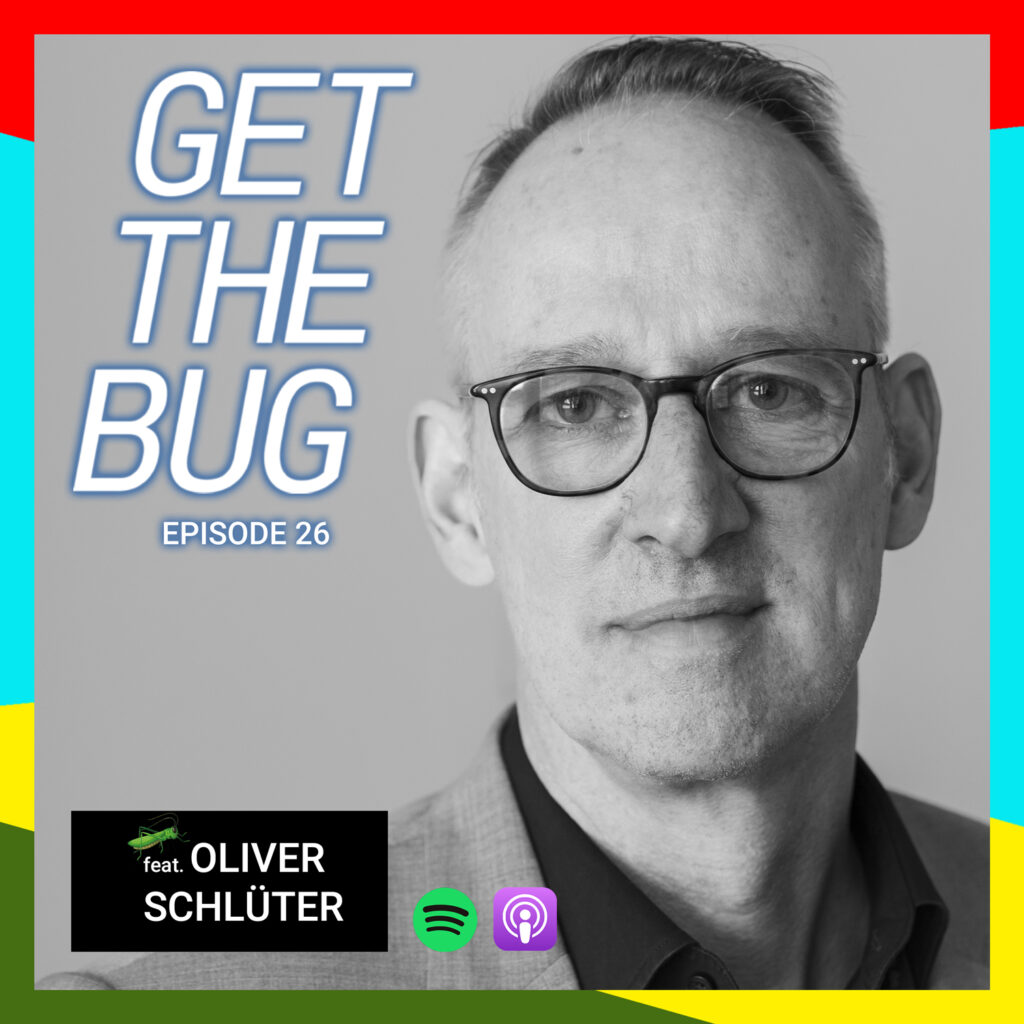
Episode 26
Featuring Oliver Schlüter, the spokesperson for the Healthy Foods program area at the ATB, the Leibniz Institute for Agricultural Engineering and Bioeconomy.
We talked about the potential role of insect farming and insect biotechnology in connecting and leading the way in research and discussions about alternative proteins and new food systems.
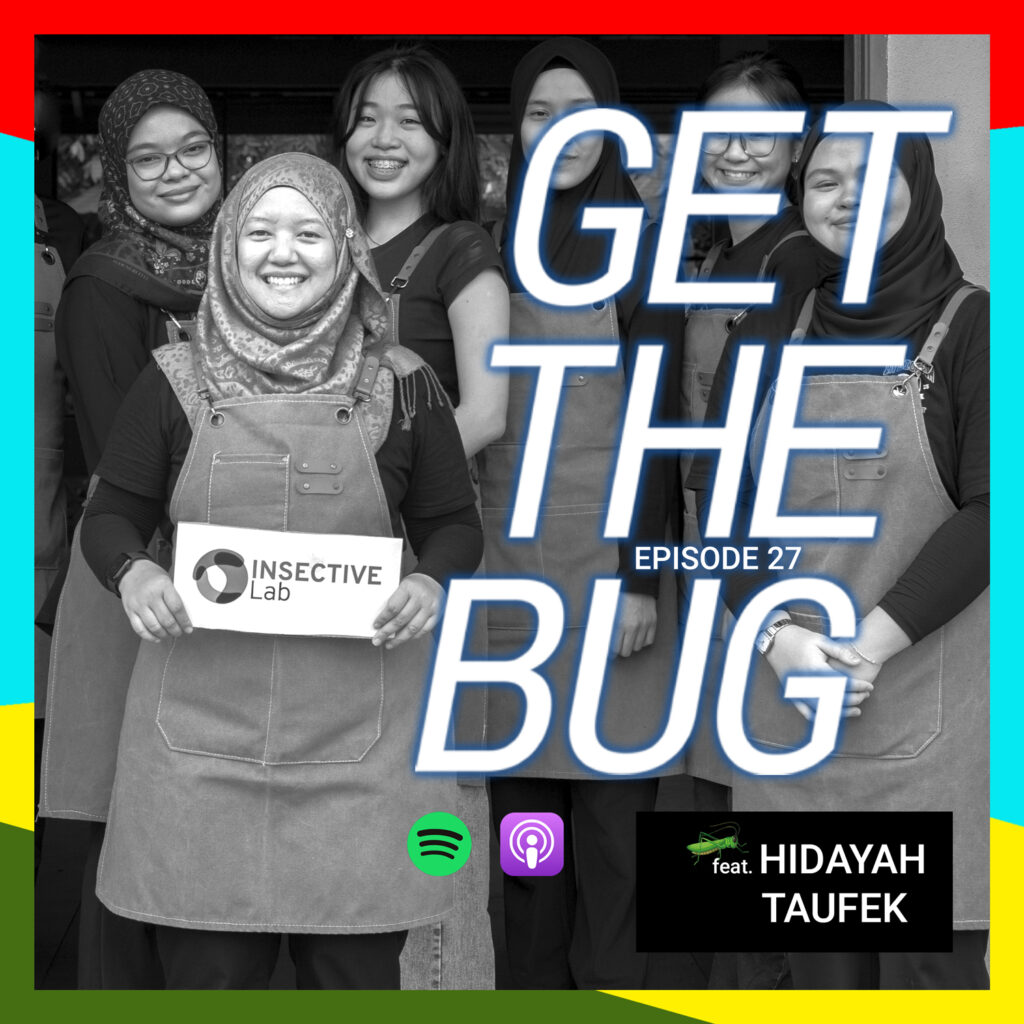
Episode 27
Featuring Hidaya Taufek, senior lecturer in animal nutrition and feed technology at the University of Malaya.
With Hidaya, we discussed insect farming as an inclusive activity for small farmers and students, the valorization of palm oil waste, the challenges posed by the absence of regulations on substrates, and even blind taste tests that revealed surprising flavors in fish fed with insect meal.
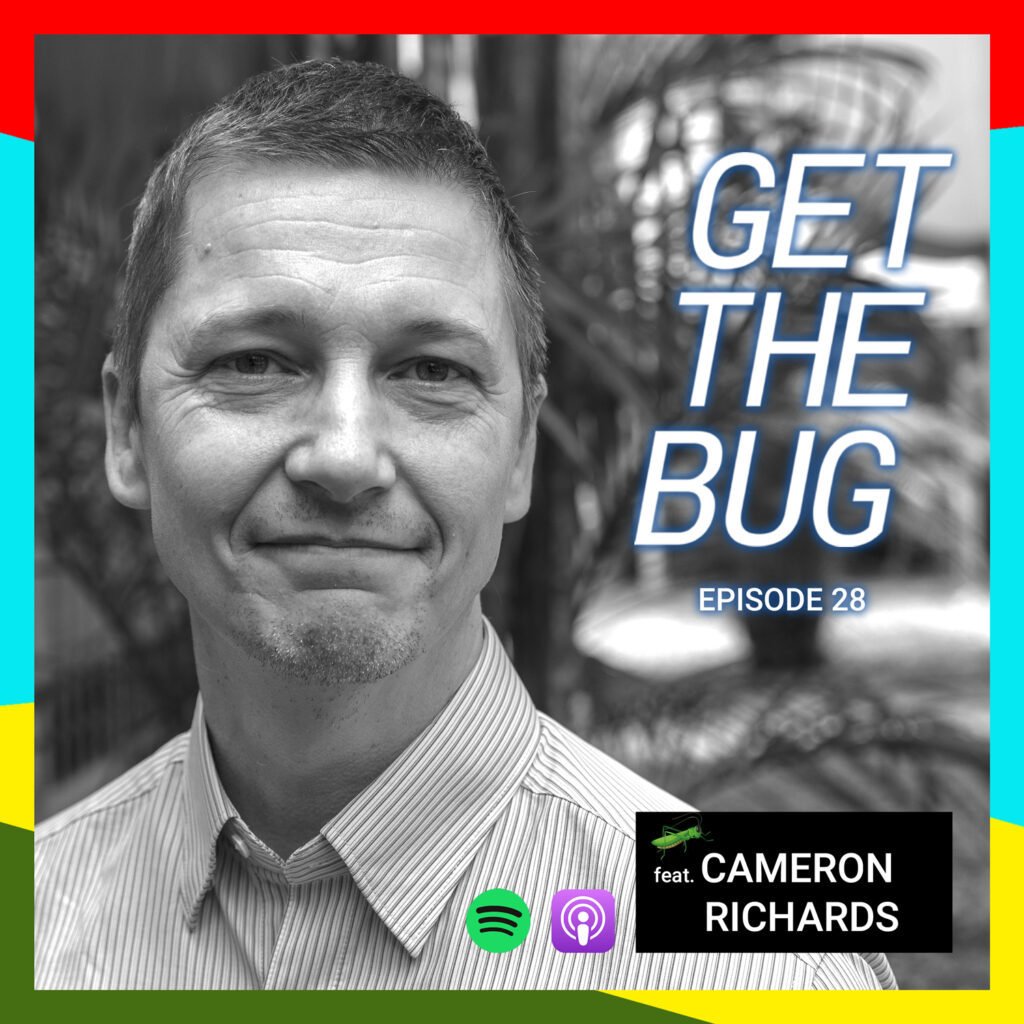
Episode 28
Featuring Cameron Richards, president of AFFIA, the Asian Food and Feed Insect Association, and senior manager at Veolia in the R&D innovations team.
We talked about the current state of insect farming in Asia, with a special focus on findings from AFFIA’s ongoing survey, which is mapping production capacities, business models, and market dynamics across the region. As he said, while companies often advertise their capacities to attract investors, the survey is shedding light on the more realistic picture of the sector.
